Your recommendations for great business books (over the years) in the comments section here have been amazing—with literally hundreds of you chiming in to share your favorite business books.
Have more business books to recommend? Share in the comments below.
What’s even better than just the sheer number of business books you’ve recommended (that I’ve since read & reviewed here), is that we didn’t just get a ton of votes for all the typical bestselling business authors that already get lots of press and praise—we got some surprisingly great suggestions from a very wide range of authors.
These business books are great for those of you looking to do anything from… starting a blog (if so, you’ll want to check out the best blogging books), to advancing your career, building a business, learning new skills, picking up more productive habits, charge higher rates for your work—and everything in between. I compiled this list of business books specifically for entrepreneurs, creatives, freelancers and professionals.
As an entrepreneur myself, I’m a huge proponent of reading business books to level up my game for one simple reason: If you want to learn about business or improve on a particular aspect of your business, a $15 to $30 book is one of the cheapest crash-course educations you can get today.
Think about it… for the cost of a cheap dinner (I live in Los Angeles), you can get a business book that may literally change your life.
In today’s world filled with online business courses, expensive training workshops and coaching programs, business books are a bargain.
Now, let’s get to it. Please note that some of the links below are affiliate links and at no additional cost to you, I will earn a commission. Know that I only recommend books and learning resources I’ve personally tested and believe are genuinely helpful, not because of the small commissions I make if you decide to purchase them.
With your help, I’ve put together this ultimate list of the most relevant, best business books for aspiring entrepreneurs, creatives and professionals to read in 2024.
And this is where I have a recommendation for you…
I’ve been flying through business books thanks to my new gift to myself—an Audible Subscription and some fantastic book reading apps, so that I can listen to more books during my workouts and in the car.
If you want to try out Audible for yourself, I couldn’t recommend it more highly. Right now, they’re offering 2 free audiobooks for all new members to try out on a 30 day trial. You can sign up right here.
Since I’ve been listening to so many of these business books, I already need more recommendations. Please comment below with your suggestions!
Now, let’s get into my picks for the best business books entrepreneurs need to read in 2024.
85 Best Business Books in 2024 for Entrepreneurs, Creatives and Professionals to Read
If you notice any great business books I’ve missed that should be included, add them into the comments below!
1. Company of One: Why Staying Small is the Next Big Thing for Business by Paul Jarvis
Company of One is hands down my #1 pick on this list of the best business books you need to read this year. In the book, author and veteran solopreneur, Paul Jarvis, breaks down his practical philosophy (and actionable approach) to building a self-funded, profitable and enjoyable business that’s designed to deliver the lifestyle you want to live. In a world overflowing with business advice or blogging tips that are telling entrepreneurs to launch a “fast growing” startup, get investor funding and aim for billions in revenue or focus on the money—Company of One is a refreshing path for entrepreneurs to instead focus on building a purposeful, single-person business that’s designed to last.
Since getting my hands on an early copy, I’ve re-read this book multiple times over the past year—and I can say it’s one of the best guides I’ve found to building a business you’ll truly love, and how to avoid the trap of pursuing goals and ideals that aren’t important to you. Now being translated into 15 languages and counting, Paul’s central message is that the real key to creating a richer and more fulfilling work life could be to not scale your ambitions into becoming a massive corporation, but rather, to work for yourself, determine your own hours and become a (more profitable) company of one. This book gives your a blueprint to doing just that.
Use My Free Keyword Research Tool
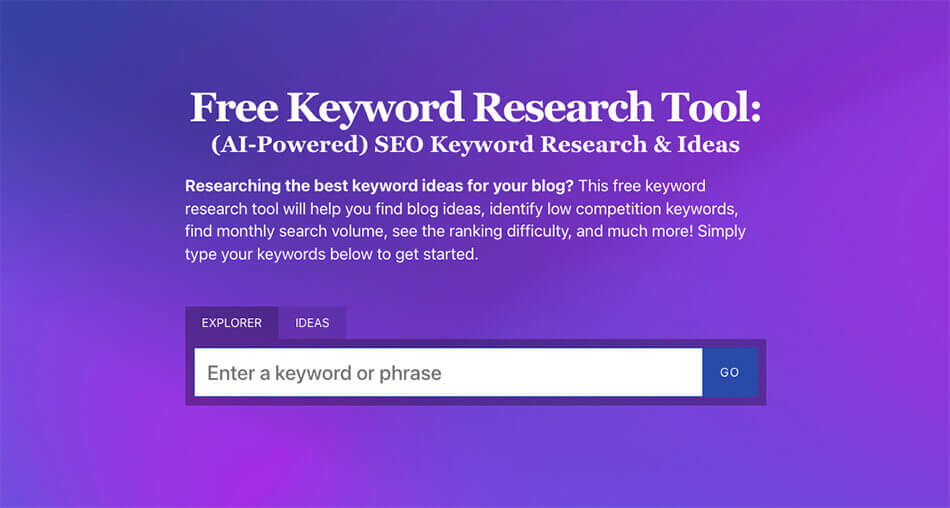
Try my free AI-Powered Keyword Tool to get dozens of research-backed ideas for keywords & topics to write about on your blog today.
2. Lean In: Women, Work, and the Will to Lead by Sheryl Sandberg
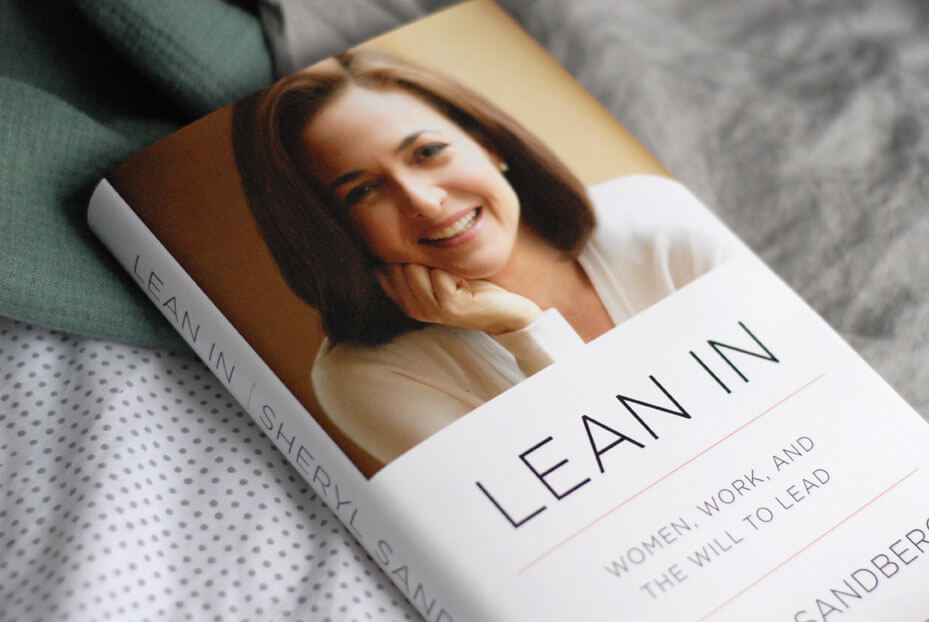
This game-changing book became a #1 international best seller for good reason. Lean In author Sheryl Sandberg, who currently serves as the Chief Operating Officer at Facebook, has had decades of experience navigating the corporate leadership ladder and becoming an executive at successful technology startups—all while balancing family life. This sits high on my list of the best business books this year because it’s themes touch on everything from how to find a mentor in the workplace, to negotiating for what you want, voicing your opinion, becoming a leader in your organization, forging an equal partnership in your home life and what true equality should look like in the workplace.
Sandberg clearly had a lot of fun writing this business book with a consistent theme of balancing light humor with sharing from her vast experience in leadership at companies like Facebook, Google and even the U.S. Treasury Department. Lean In is a strong call to action (and blueprint) for personal growth that can empower women around the world to achieve their full potential. In writing Lean In back in 2015, Sandberg truly restarted the important conversation around how to get women to a more equal level in the workplace—and her work is still being continued by a dedicated team at the Lean In Organization.
3. Tools of Titans: The Tactics, Routines, and Habits of Billionaires, Icons, and World-Class Performers by Tim Ferriss.
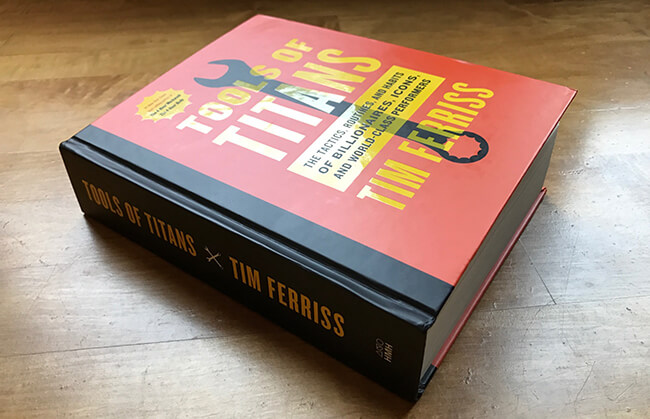
Tim Ferriss has been on a serious mission to distill and share his biggest lessons learned from top performers (from all walks of life) through his most recent business books.
When it comes to Tools of Titans, I’ve gotten through almost all of this nearly 650 page long beast that dives into everything Tim Ferriss, the multi-New York Times Bestselling author of The 4-Hour Workweek, has learned—tactics, routines and habits—from interviewing more than 200 of the world’s most recognizable figures in business, sports, academia, the military and just about every other imaginable industry on The Tim Ferriss Show, which now has 100 million+ downloads.
Here’s why this one ranks so high on my list of the best business books: It so naturally captures the best business advice, productivity tips, life lessons and so much more from all the guests of Tim’s podcast ranging from Tony Robbins, to Derek Sivers, Daymond John and many more. Reading this business book is one of the most affordable investments you can make in your future as an entrepreneur.
4. Good to Great: Why Some Companies Make the Leap and Others Don’t by Jim Collins
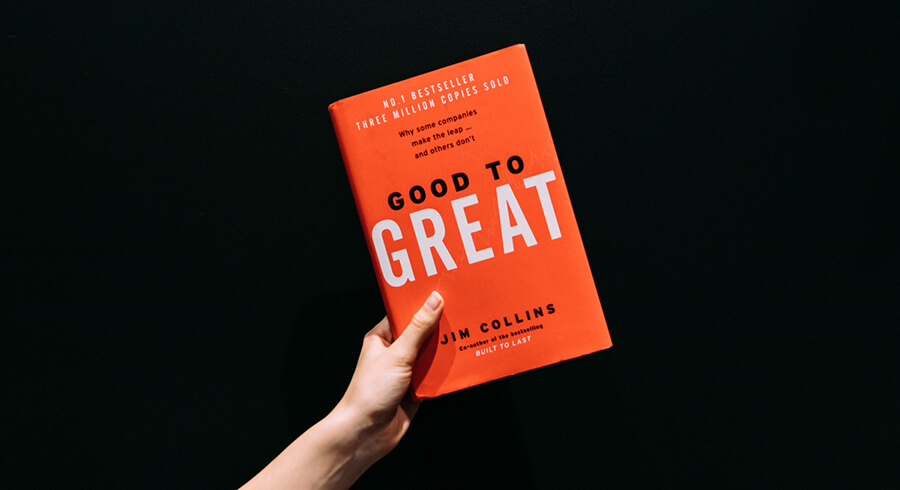
Good to Great is one of the best management-related business books I’ve ever read, and it’s a timeless classic. While originally written by world-renowned author, Stanford researcher and consultant, Jim C. Collins back in 2001, his highly actionable advice and fascinating case studies still stand the test of time in this book.
In Good to Great, Collins describes how companies transition from being just good companies into truly great companies that shakeup entire industries for the better—and the reasons behind why most companies fail to ever make that transition happen. This business book is a mega best seller, having sold over four million copies (so far) and goes to great length to break down the factors that are common to the world’s few companies that’ve been able to sustain remarkable success for a substantial period of time. If you want to build a business of your own one day, then this is a must-read.
5. Outliers: The Story of Success by Malcolm Gladwell.
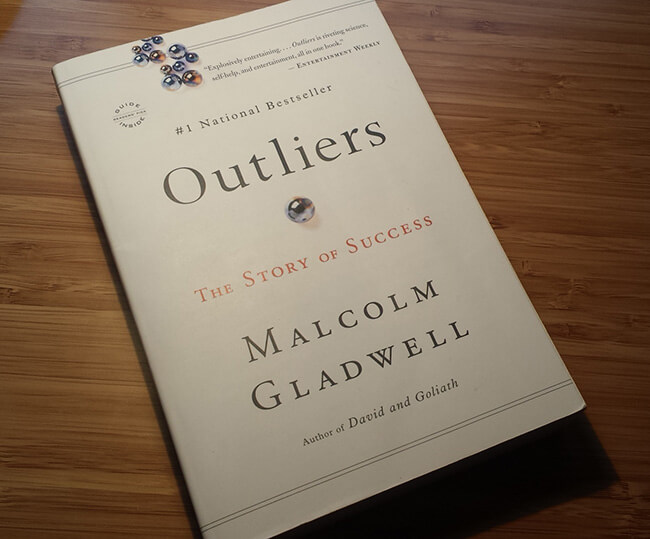
Outliers is credited with popularizing the research that led to formulating the 10,000 Hour Rule for achieving mastery in any subject through deliberate practice—even though practice has since been shown to be merely a component of what it takes to become an expert at your craft. What’s most beautiful about Outliers though, is that the book seeks to answer a simple question, “What makes high-achievers different?” Gladwell believes that we pay too little attention to successful people’s culture, family, generation and the idiosyncratic experiences of their upbringing.
Overall, this has been the most influential business book throughout my life—and I come back to read it every year. I credit it with fueling a lot of my initial inspiration for learning how to start a blog and multi-bestselling author Malcolm Gladwell‘s writing style is still one of my primary influences. His content has actually fueled many blog post ideas for my site. In the book, Gladwell focuses on finding groups of successful people and uncovering exactly how they achieved their level of professional or personal success.
He argues that success is closely connected to opportunity and the amount of time people spend practicing their craft. He presents a compelling case that the reason more people aren’t experts is that since it takes so many hours to master something, most people simply don’t have the patience to devote that kind of time to perfecting a skill. On top of that, Gladwell also talks about the necessary components for finding (or creating) meaningful work, which inspired my first guest blog post ever—on the Buffer blog and led me down the path of learning how to make money blogging & turn this site into a real business.
6. Deep Work: Rules for Focused Success in a Distracted World by Cal Newport.
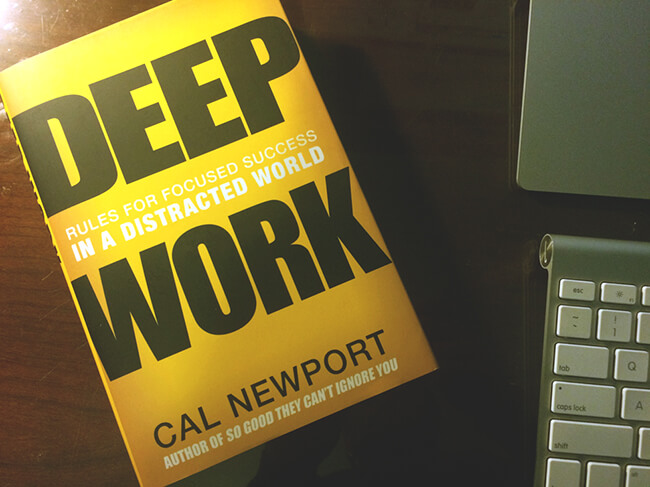
A Wall Street Journal Bestseller, this business book argues that one of the most valuable skills in the world is quickly becoming rare—the ability to focus without distraction on a demanding task. Author Cal Newport explains that by mastering this skill, you’ll be able to more effectively process complicated information and deliver better results in less time as a result.
This is one of those business books I picked up and started reading because I needed to reaffirm my commitment to not allowing myself to get distracted by chasing the wrong opportunities and spending time in other ways that don’t help me achieve my most meaningful goals. Many of the principles covered in this book helped me refine my opportunity management system for being more productive while wearing the many different hats it takes to be a content marketer, blogger that consistently experiments with new ways to promote your blog, and course creator on a daily basis.
So, if you’re spreading yourself too thin, want to learn how to eliminate (and stay away from) distractions and get back to doing only what you do best—Deep Work is guaranteed to help you accomplish that. There’s even an audiobook version available to listen on Audible.
7. Crushing It: How Great Entrepreneurs Build Their Business and Influence-and How You Can, Too by Gary Vaynerchuk
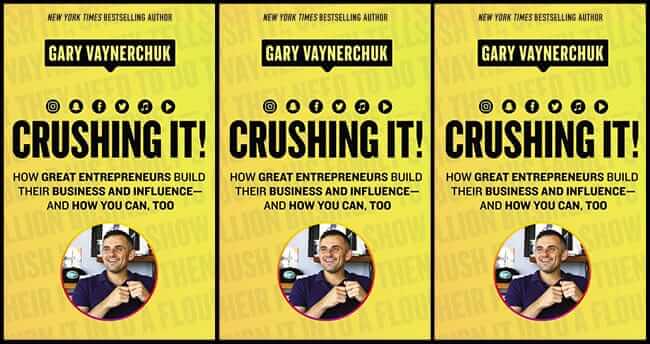
Four-time New York Times bestselling author Gary Vaynerchuk is bringing the heat again with his brand new business book, titled Crushing It that already hit Amazon’s #1 bestseller list in social media for business before even launching.
Not to be confused with Vaynerchuk’s initial 2009 foray into business books with Crush It: Why Now is the Time to Cash in Your Passion, this new book chronicles brand new lessons, strategies, tactics, advice and inspiration pulled straight from both his own amplified business experience and that of dozens of other influencers and entrepreneurs from around the world. Vaynerchuk offers fresh tactical advice on how to become a household brand on social channels like Twitter, Facebook, YouTube, Instagram, and Snapchat; podcast platforms like Spotify, Soundcloud, iHeartRadio, and iTunes; and other emerging platforms like Musical.ly.
If you’re looking to build a brand that can grow your business, this is a must-read business book for the year. And though it’s a guide to building your own path to professional and financial success, remember that it’s not about getting rich. It’s about living life on your own terms.
8. The Power of Broke: How Empty Pockets, a Tight Budget and a Hunger for Success Can Become Your Greatest Competitive Advantage by Daymond John.
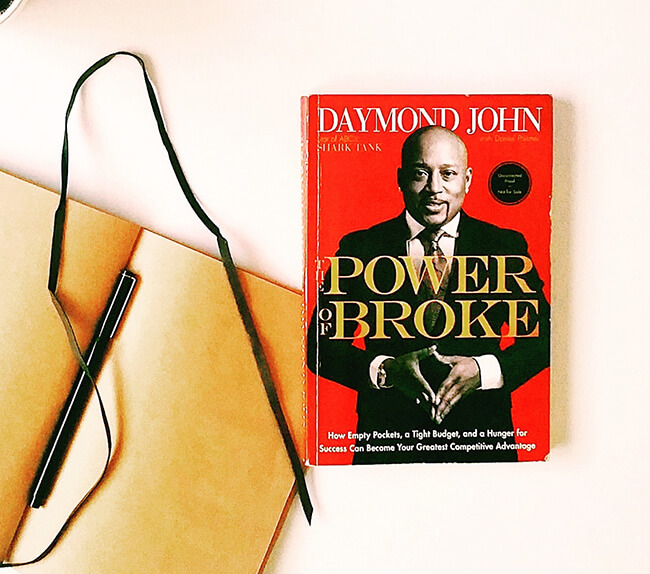
I’m a huge fan of great stories about how entrepreneurs have risen from humble beginning to start a business from scratch and rise to fame. Shark Tank star and Fubu Founder, Daymond John embodies this in true form through his origin story within The Power of Broke. In this business book, he discusses how to get scrappy and how to leverage the tools, relationships and resources at your disposal to build a successful business on a small budget.
He emphasizes how starting a business when you’re broke forces you to think creatively and use your limited resources efficiently. It forces you to be innovative. Even more importantly, he explains how he’s intentionally placed resources constraints on himself over the years & how that’s helped him make the most of what he’s had. The Power of Broke is just as applicable to first-time entrepreneurs as it is seasons veterans. This business book will help you scrape, hustle and dream your way to the top.
9. Smarter Faster Better: The Transformative Power of Real Productivity by Charles Duhigg.
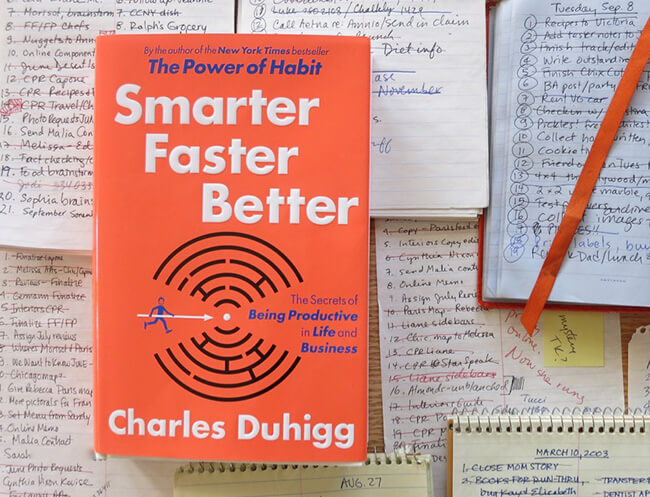
This business book is particularly unique in the productivity space because it offers up a new definition of what it means to be productive. This book teaches you how to shift your focus to managing how you think rather than spending time managing what you think. It’s core principle is that you can transform your life by making certain choices—and bestselling author Charles Duhigg gives you the tools to rewiring your decision-making process.
In Smarter Faster Better, Duhigg lays out a compelling case for how the traditional goal-setting model of focusing primarily on our big ambitions and ignoring all of the smaller decisions & easy goals along the way is inherently flawed if you want to create big change in your life or business. He argues that the people and companies who innovate quickest and get the most done have finessed the art of shifting importance to achieving the small goals—that eventually ladder up to bigger ones.
10. Start with Why: How Great Leaders Inspire Everyone to Take Action by Simon Sinek.
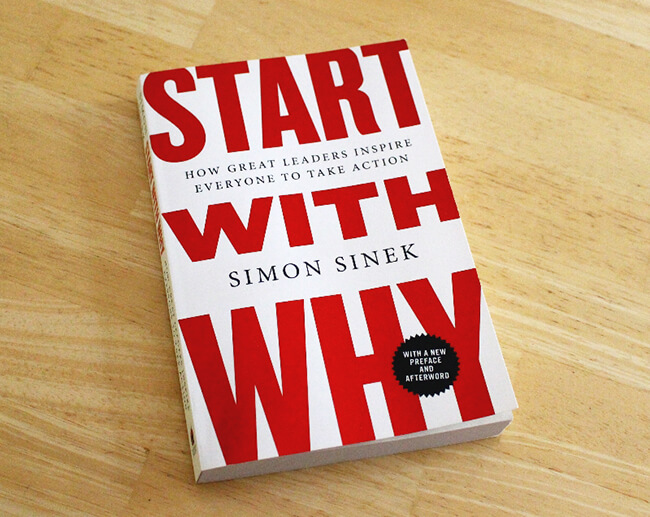
Start with Why grew out of a TED talk delivered by the author, Simon Sinek, which has become the third most popular TED Talk ever. It’s built around the question, “Why are some people and organizations more innovative, more influential and more profitable than others?” This business book’s basic premise is that the leaders who have had the greatest influence, act and communicate in the same way—which is the opposite of how most people function.
Sinek calls this idea, “The Golden Circle,” and it all begin with the question, “Why?” Interestingly, the reviews for this business book are very polarizing. Readers either love it or hate it. Personally, I love it. I think the harshest reactions and reviews come from readers who have difficulty viewing themselves objectively, taking in critical feedback and translating it into positive changes in leadership. It’s much easier to blindly continue on down the same path… What do you think?
Do you agree? Tell me what you think of Start with Why in the comments below.
Sinek does a great job of speaking in motivational quotes within his writing too, so you can expect to find a lot of inspiration from what you read in Start with Why.
11. The Lean Startup: How Today’s Entrepreneurs Use Continuous Innovation to Create Radically Successful Businesses by Eric Ries.
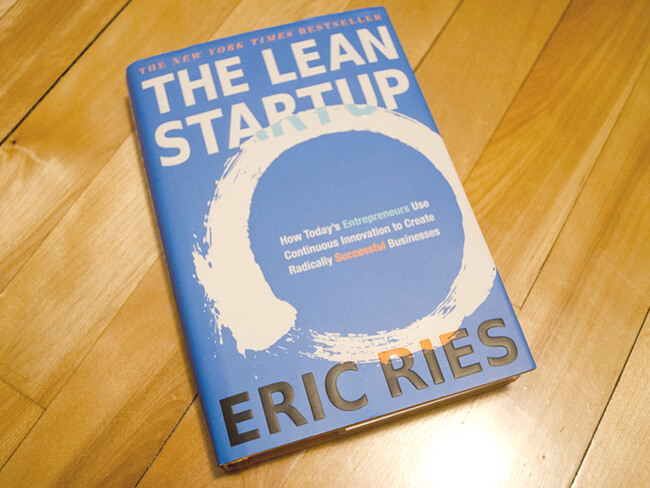
In this business book, author and entrepreneur Eric Ries takes us through the lean startup approach, which has changed the way that many startup founders seek to build companies and launch new products—largely based around the principle of rapid idea validation before investing heavily into an idea. His definition of a startup is broad, any business from a solopreneur, blogger or freelancer operating out of their garage to a venture-backed project within a Fortune 500 company, as long as you’re determined to discover a successful path to building a sustainable business.
The Lean Startup offers entrepreneurs a way to validate business ideas, test their visions continuously, to adapt and modify before any real damage is done. This business book provides a new approach to successfully managing a startup and also talks through some of the innovative online business tools that can help you accelerate your path towards validation along the way.
12. Grinding It Out: The Making of McDonald’s by Ray Kroc
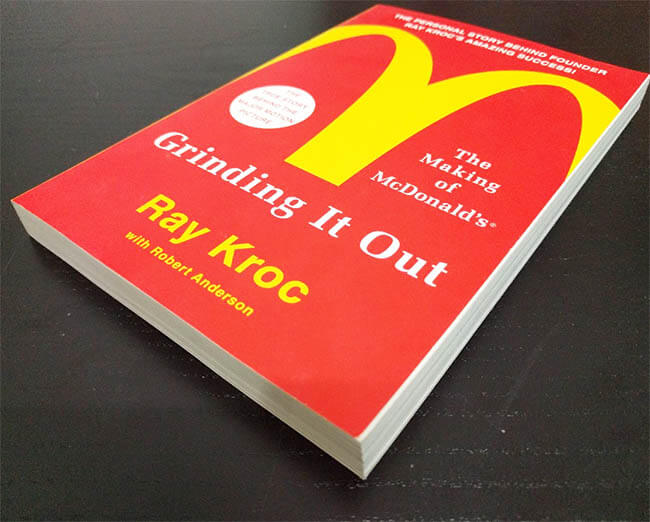
Hate him or love him, Ray Kroc was a polarizing figure in the world of business and Grinding It Out is a great source of motivation & stories. Regardless of your personal feelings about the man (after watching The Founder with Michael Keaton), the fact remains that few entrepreneurs can claim to have radically changed the way we live and eat—Ray Kroc is one of them.
He’s largely credited with spreading mass revolutions in food-service automation, franchising, shared corporate training and even advertising with his work growing McDonald’s into one of the most successful companies of modern history. Even more interesting, Kroc wasn’t your typical self-made businessman, as he was 52 years old when he opened his first franchise of McDonald’s and began his journey to creating a network of fast food chains worth over $150 Billion today. And if you’re interested in some more food-related reading, check out my girlfriend’s vegan food blog, Vegan Anj. Alongside her blog, I’m also documenting my own journey into the vegan lifestyle over at VeganTable.
13. The Motivation Myth: How High Achievers Really Set Themselves Up to Win by Jeff Haden.
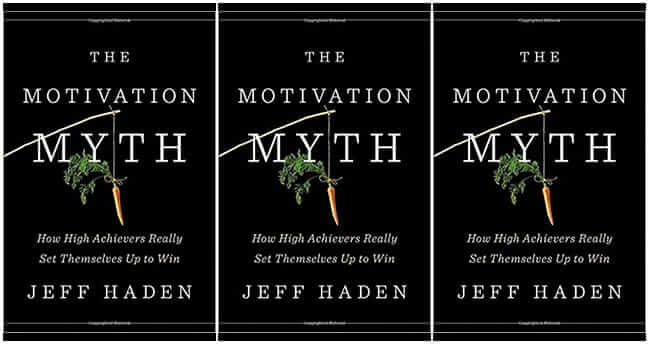
Coming from Inc.com’s most popular columnist, Jeff Haden, this business book was a highly anticipated, counterintuitive—but practical—guide to finding and maintaining the (real) lasting motivation it takes to achieve great things in life. The book is based around Haden’s core belief that, “motivation” as we know it is a complete myth in our society.
If you’ve read my blog before, then you know how big a fan I am of utilizing motivational quotes to get myself re-focused in times of self-doubt and help look back to the greater purpose of what I’m building. Well, this business book by my friend, Jeff Haden, takes motivation to a much deeper level. Haden argues that motivation isn’t a magical formula that we need at the outset of any major change, challenge or endeavor. Rather, motivation is a result of process, not a cause. If you’ve ever felt let down by self help books and “proven” success strategies that’ve failed, then this business book is a must-read that’ll bring you practical advice to stop stalling and start actually working on your dreams.
14. The Subtle Art of Not Giving a F*ck: A Counterintuitive Approach to Living a Good Life by Mark Manson.
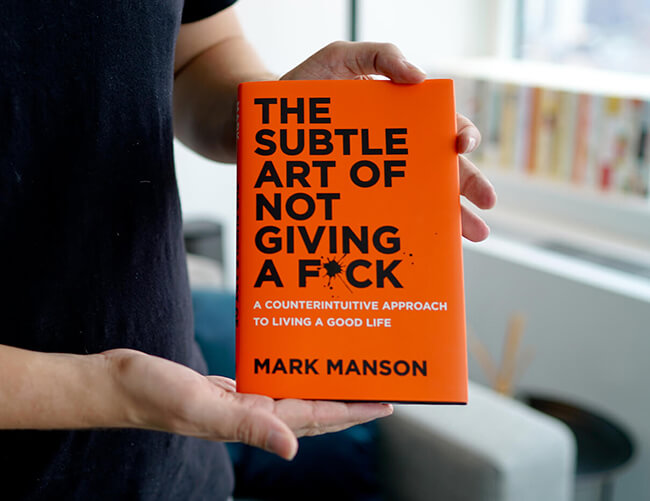
The title alone sold me on this business book, but it’s been recommended to me by several friends. This New York Times Bestseller is built around the core argument, backed by academic research, that improving our lives hinges not on our ability to turn “lemons into lemonade,” but on learning to stomach the lemons better. It’s about setting realistic expectations for ourselves. Embracing our fears, faults and uncertainties to begin finding the courage, honesty, responsibility we seek. This was a fun read while I was out in nature on a camping trip—and as an aside, check out my list of the best hiking books today.
One of the things I like most about this book is how the author, Mark Manson‘s personal writing style truly reflects the title of the book. What reads as 2 parts deep life advice and 1 part comedy, keeps you engaged and anxiously anticipating what comes next—especially when listening on Audible. Another thing I love about Manson’s style is that he doesn’t give a shit about respecting industry jargon or business slang—he actively makes fun of it.
15. The Hard Thing About Hard Things: Building a Business When There Are No Easy Answers by Ben Horowitz.
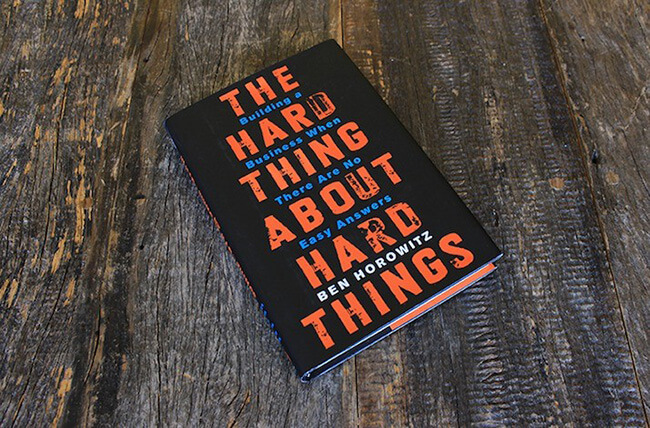
This is one of my favorite titles I’ve ever seen for a business book. Author Ben Horowitz is a co-founder and general partner of the venture capital firm Andreessen Horowitz. For many years he wrote on a personal blog, giving down to earth business advice and sharing his experiences on building and running startups. For this business book, he’s adapted most of his original posts and compiled them into an incredible narrative about how to navigate the inevitable difficulties when starting and growing a business (especially on the side of your day job).
Horowitz analyzes the problems that confront leaders every day, sharing the insights that he’s gained along the way. He tells things straight, covering topic areas like starting a business with friends, firing those friends when things aren’t working out, poaching competitors and cultivating a CEO mentality. Perhaps what I love most about The Hard Thing About Hard Things, is that he amplifies the stories with lyrics from his favorite rap songs.
16. The Power of Habit: Why We Do What We Do in Life and Business by Charles Duhigg.
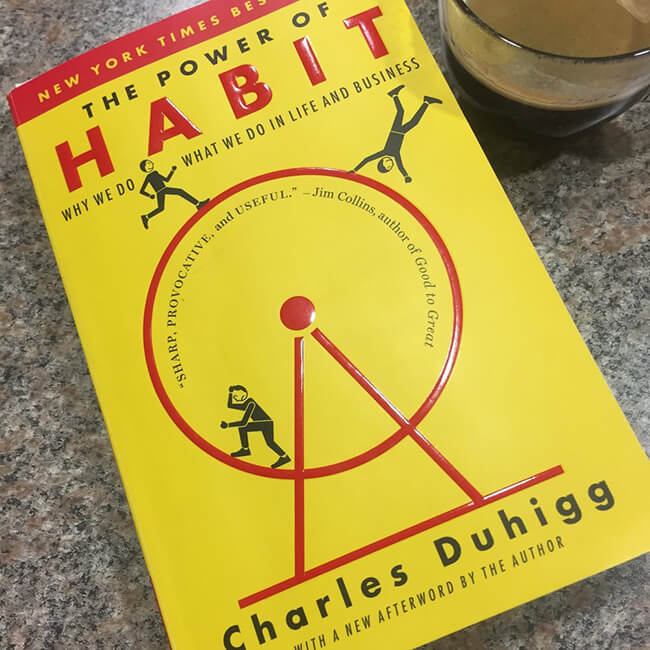
I remember when The Power of Habit especially grabbed the attention of readers in the U.S. as it was released in 2014. It topped most of the bestseller lists and spent more than 60 weeks on the New York Times Bestseller List. In this business book, Pulitzer Prize–winning reporter Charles Duhigg takes us to the edge of scientific discoveries, explains why habits exist and how they can be proactively changed to create positive results in our lives.
In this business book, Duhigg emphasizes how important habits are to our success. Habits are the essential keys to achieving meaningful goals (or for me, blogging goals). It’s our good habits that give us the structure and discipline to exercise regularly, be more productive and continue making progress towards our larger life goals. Without good habits, it’s all too easy to give up when the going gets rough. This business book will give you the foundation for creating success-driving habits.
17. So Good They Can’t Ignore You: Why Skills Trump Passion in the Quest for Work You Love by Cal Newport.
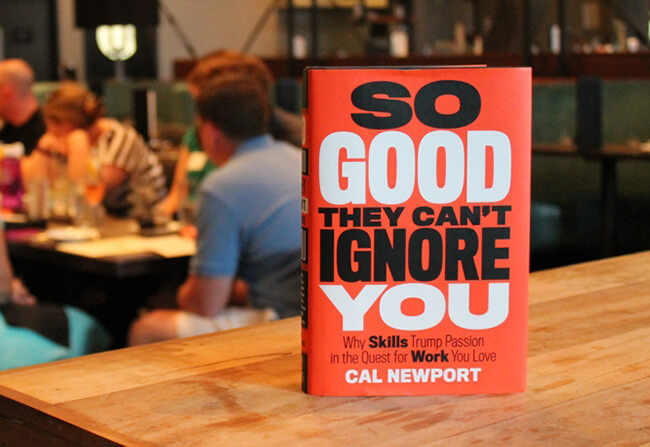
This is the second business book from author Cal Newport that made my must-read list of the year (for a very good reason). So Good They Can’t Ignore You is based around the philosophy I agree wholeheartedly with, that “follow your passion” is some of the worst advice we’ve ever been told. Even more importantly, that following this bad advice and then failing at your “predetermined” passion can lead to anxiety, chronic remote job hopping and in the worst case depression due to lack of achievement.
In this business book, Newport argues that true passion is discovered only after you put the hard work into developing a strong skill—an ability that you in turn love to use because you’re truly great at it. It’s actually your natural talents and refined skills (like blogging skills) that should determine your career path or the type of business idea you start working on in the first place.
18. Money Master the Game: 7 Simple Steps to Financial Freedom by Tony Robbins.
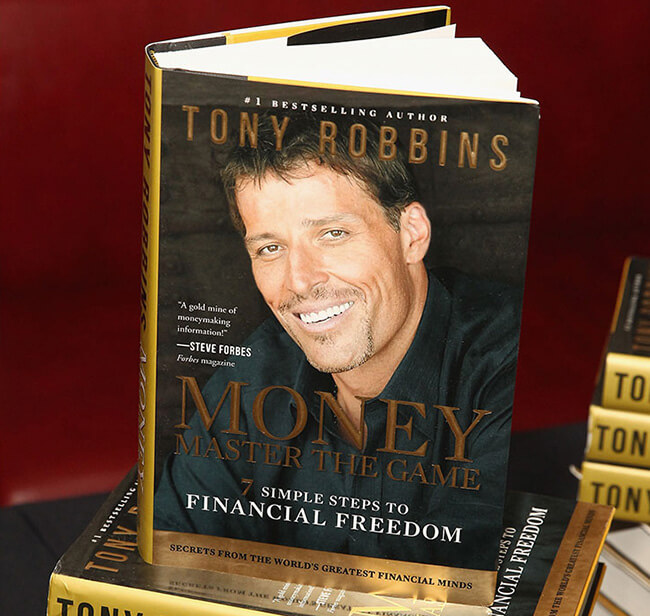
Tony Robbins is internationally famous on the world’s speaking circuit for his inspiring speeches, transformational workshops and courses. More than 4 million people have attended his live events over the past couple of decades. As Robbins shared with me in an interview last year, he believes wholeheartedly that success in business has more to do with psychology than skills, experience or any other single trait. He explained, “Business success is 80% psychology and 20% mechanics. And, frankly, most people’s psychology is not meant for building a business.”
In this business book, Robbins turns his attention to how we can improve our lives through more effective money management. He gained insights from interviewing 50 top financial experts, his own experience growing a multi-billion dollar business and has created a 7-step process to follow for moving towards financial freedom in Money: Master the Game. Reviews are pretty mixed and it seems to polarize readers. The common thread seems to be that many struggle to make it through the first 50 pages, but those who make it past that point love the books message by the end. Personally, I’d definitely recommend it.
19. Never Split the Difference: Negotiating As If Your Life Depended On It by Chris Voss and Tahl Raz.
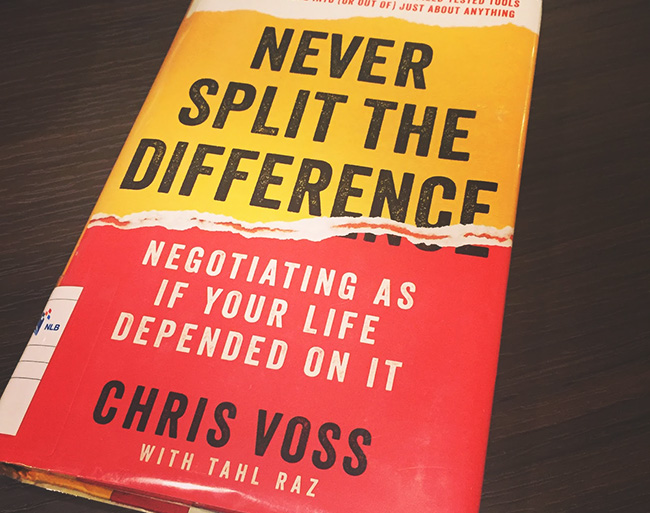
Imagine the pressure you’d be under if the highly delicate negotiations with a kidnapper were dependent on your negotiation skills. Get it right, the hostage goes free and you’re the hero of the moment. Get it wrong, the hostage is harmed and you become the villain—in your own mind at least. In this unlikely business book, author Chris Voss knows the feeling all too well.
He knows what it’s like to be in this type of situation. Voss is a former international hostage negotiator for the FBI, has faced off against bank robbers and terrorists, then ultimately became the FBI’s lead international kidnapping negotiator. In Never Split the Difference, he shares the skills that helped him succeed—and how those strategies can be used to become more persuasive as an entrepreneur.
20. Zero to One: Notes on Startups, or How to Build the Future by Peter Thiel and Blake Masters.
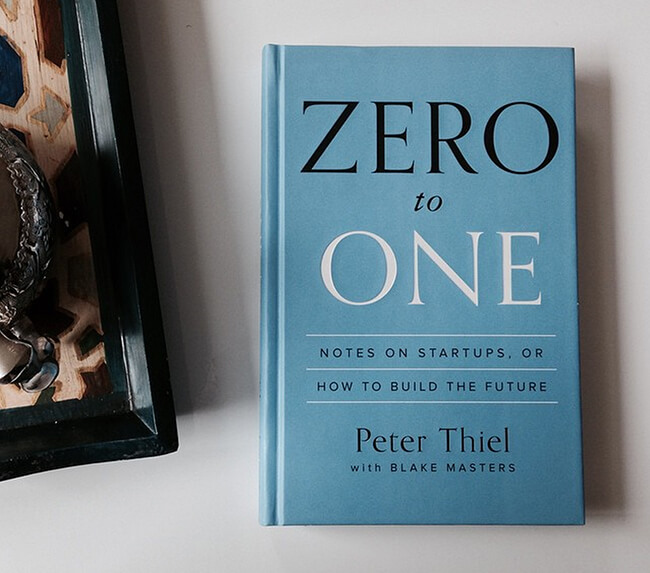
This business book takes a close look at the power of innovation. PayPal founder and first Facebook investor, Peter Thiel shows how we can still go about creating new things. Which I completely agree with—we haven’t invented everything yet. In Thiel’s opinion, we are actually living in an age of technological stagnation because everybody is blinded by shiny objects and new gadgets. There’s more to innovation and progress than what computers and Silicon Valley have to offer—and many of the best business ideas are still out there waiting to be built.
The key to progress, according to Thiel, is learning to think for yourself. When you do something new, you are moving from 0 to 1 (hence, the title). His thesis in the book is that the next generation of successful entrepreneurs will make completely new things—not just updates of our existing products. In this business book, Zero to One, he lays out how to train yourself to be an innovator.
21. The Tipping Point: How Little Things Can Make a Big Difference by Malcolm Gladwell.
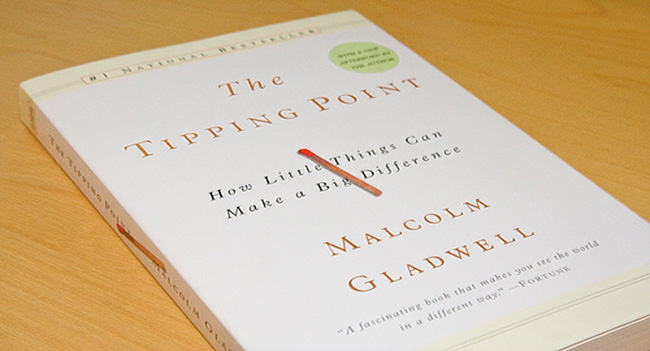
This business book, another from Malcolm Gladwell is his argument that there is a magic point at which a business idea, a movement or something similar crosses a threshold of adoption and begins to spread like wildfire. It may be a small iPhone app that skyrockets to the top of the App Store charts in one weekend and ends up becoming a global phenomenon. Why do things like this happen? They cross a tipping point.
Gladwell argues that there are particular personality types that deliberately work to push ideas to the tipping point. These include trendsetters and the world’s great salespeople (all of whom employ one of the best CRMs in order to succeed, mind you). In this business book, Gladwell discusses what these magical people do in order to naturally find the tipping point and gives readers practical strategies for replicating their success. This includes his three rules for creating your own Tipping Point: The Law of the Few, the Stickiness Factor and the Power of Context.
22. Extreme Ownership: How U.S. Navy SEALs Lead and Win by Jocko Willink and Leif Babin.
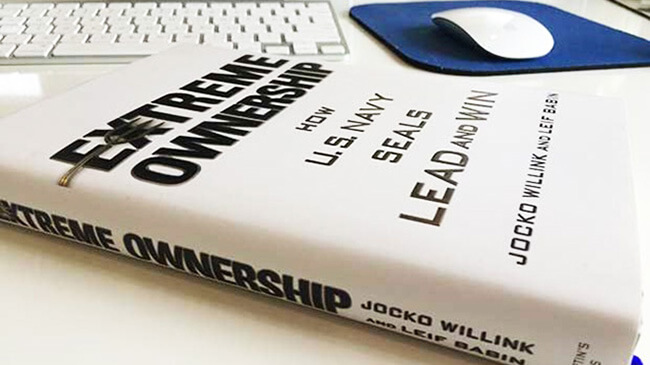
You may wonder why a book about the U.S. Navy SEALs is on a list of best business books. In one word: Leadership. Through their experiences with a SEAL unit in the battlefields of Iraq, authors Jocko Willink and Leif Babin learned firsthand that SEAL team leadership training is the best in the world–whether that’s in combat or in business. As an entrepreneur, developing your leadership skills is one of the most important factors in determining the success or failure of your venture.
Extreme Ownership takes the lessons these authors learned on the battlefields and applies them to other real-world situations, especially business. Each chapter takes a principle that a great leader has demonstrated and shows how the principle works in practice.
As the book’s title suggests, the key to successful leadership is that a team leader needs to take ownership for everything their team does. There is nobody else to blame; you take personal responsibility for your team’s failures and reap the rewards when your team succeeds.
23. Hooked: How to Build Habit-Forming Products by Nir Eyal.
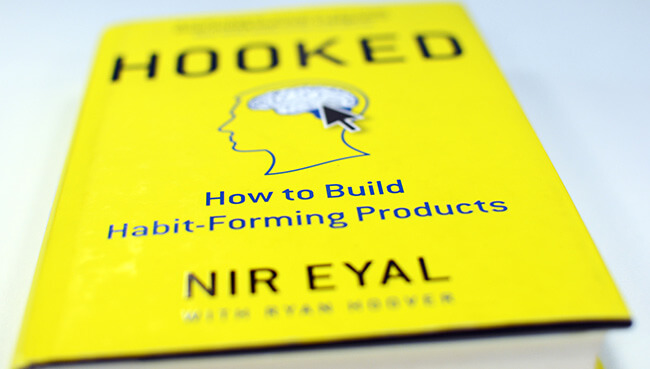
In Hooked, Wall Street Journal bestselling author Nir Eyal takes a look at why some companies and individuals are able to consistently create products that take off from day one and capture the public’s imagination, while others launch new products to the sound of crickets.
In this business book, Eyal explains what he calls The Hook Model, which is a four-step process successful companies follow when creating products that subtlety encourages (and rewards) consumers to behave in a desirable behavior for the company. Tech companies and games like Facebook, Twitter and Candy Crush that perfectly follow The Hook Model are able to create products that bring consumers back again and again without the need for expensive advertising.
24. Traction: How Any Startup Can Achieve Explosive Customer Growth by Gabriel Weinberg and Justin Mares.
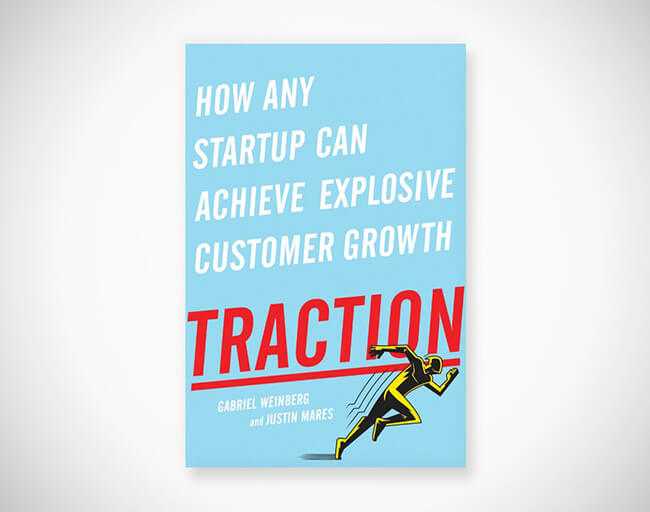
Starting a business, especially for the first time, is a lot like putting together a puzzle—one that doesn’t necessarily have a clear ending. In this business book, authors Gabriel Weinberg and Justin Mares pull from their own experiences building and selling multi-million dollar companies to teach other entrepreneurs how to find and focus on the right growth levers that’ll scale their businesses quickly.
Traction presents the compelling argument that the key to success in business isn’t just coming up with “the best idea,” having a brilliant team, or raising more funding than your competitors. Business success is directly related to how consistently you can acquire new customers (or users) for your product or service—a serious challenge if this is a side hustle idea that doesn’t get your undivided attention. That’s true traction and once you’ve unlocked your growth lever, it makes everything else significantly easier. When you have traction, you can raise funds on your own terms, hire the best talent, garner press, establish partnerships and sell to whomever you choose. Traction is proof that your business is on the right track.
25. How to Win Friends & Influence People by Dale Carnegie.
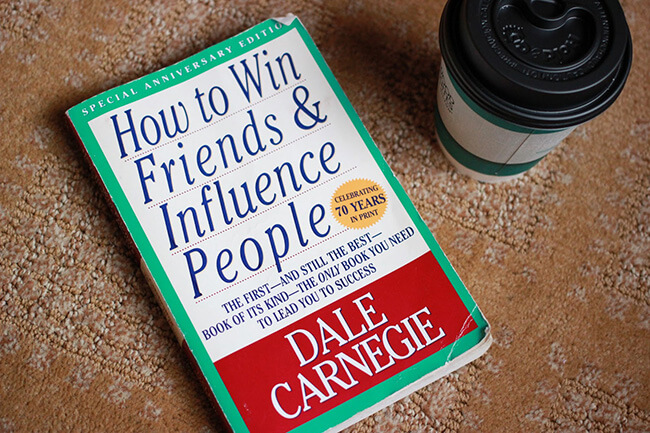
This business book is a leadership classic and has been more than seventy years—but there’s a reason. As the title suggests, it teaches you how to effectively work with other people, how to become a better manager, leader and connector. Author Dale Carnegie provides readers with time-tested strategies for you to manage relationships more effectively, build friendships and to encourage people to agree with your way of thinking.
Carnegie covers much more than just trying to convince people to agree with you in this book. It’s a guide for how to get along with people. It also shows that if you want to get along with people, you have to be genuinely nice to them and show an interest in their lives.
26. The Personal MBA: Master the Art of Business by Josh Kaufman.
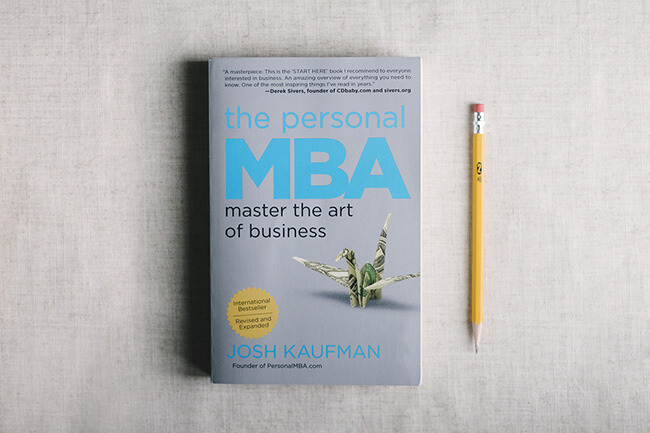
International bestselling author Josh Kaufman is not a fan of the formally-taught Masters in Business Administration (MBA) programs offered by the universities in the U.S., which often run in excess of $140,000 or more to get your degree. In this business book, Kaufman shows how they’re often teaching irrelevant theoretical information that doesn’t further graduates abilities to succeed in business—at insanely high costs.
Instead of getting an MBA, Kaufman explains that you can learn about business with practical experience, as long as you read and learn about the fundamentals of modern business practice along the way. This business book is designed to educate you about business on your own time at comparatively little cost (for around about how much it costs to blog). It’s a Personal MBA that won’t send you into a mountain of debt.
27. Choose Yourself! Be Happy, Make Millions, Live the Dream by James Altucher.
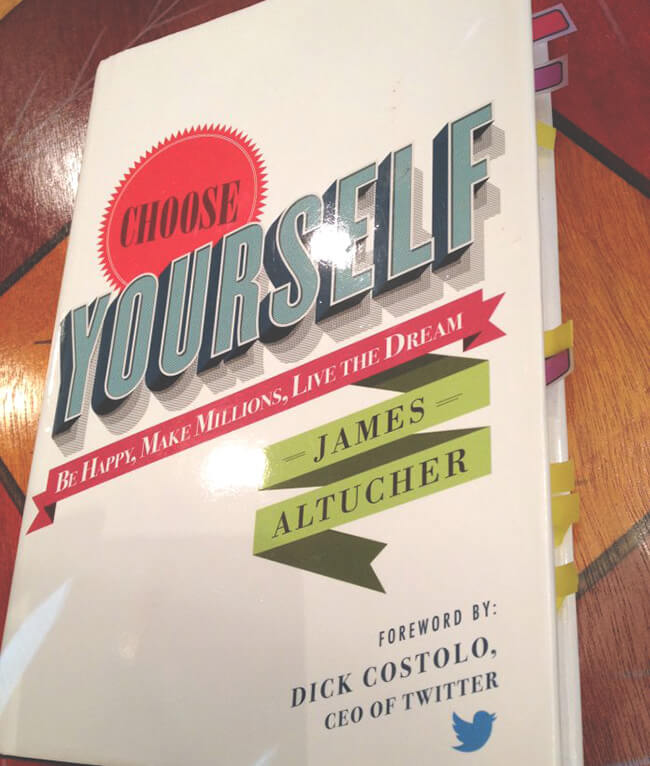
This business book, my favorite from prolific writer and ridiculously hilarious entrepreneur James Altucher takes a refreshingly honest look at the difficult world we’re living in, where there are no guaranteed jobs, no certainty of a comfortable retirement and no probability that a college degree will lead to the lifestyle you want. He believes that the only person you can fully believe in is yourself. One side effect of this “Brave New World,” is that it’s easier than ever to turn your own strengths, skills and interests into a business where you can employ yourself.
Altucher focuses on helping you improve your physical, emotional, mental and spiritual wellbeing while finding your way towards uncovering potential business opportunities you’ll be uniquely qualified to pursue. In this business book, he asks why you would put your trust in others who don’t care about your future as much as you do—and gives you the tools to take control of your own life.
28. Purple Cow, New Edition: Transform Your Business by Being Remarkable by Seth Godin.

In this business book, multi-bestselling author and marketer Seth Godin teaches readers that the Purple Cow is the fourth P of Marketing–after Price, Product and Publicity.
What exactly is a purple cow? It’s a metaphor for something that’s phenomenal, counterintuitive and even unbelievable. Godin believes your common-place cow to be brown and boring—the “industry standard.” On the other hand, if you were to see a purple cow out in a field, you’d stop and take notice. Anyone who sees a purple cow would never forget it. In Purple Cow, Godin outlines the importance of creating a purple cow with everything you build and do—and he gives you tactical strategies on how to make your business remarkable. And if you’re in the midst of learning how to drive traffic to your blog, creating something truly remarkable is the best long-term blog strategy you can ever invest in (check out my picks for the best blogging courses to get even more about building a blog readership).
29. Influence: The Psychology of Persuasion by Robert B. Cialdini.
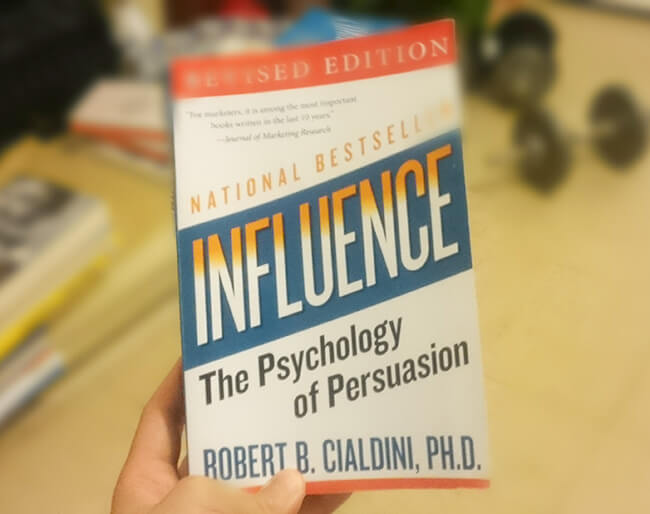
This is a classic business book for marketers and people looking to build their marketing skills. Dr. Robert Cialdini first published this in 1984, yet it’s still just as relevant today as it was then—I still read it about every other year. Influence discusses how you can use the power of persuasion to influence how other people react. There are six universal principles at the core of Cialdini’s thesis of how to become a successful persuader: Reciprocation, commitment and consistency, social proof, liking, authority and scarcity.
Influence teaches you how to master these principles of persuasion, as well as how to identify when others are attempting to use these tactics on you.
30. Rich Dad Poor Dad: What The Rich Teach Their Kids About Money That the Poor and Middle Class Do Not! by Robert T. Kiyosaki.
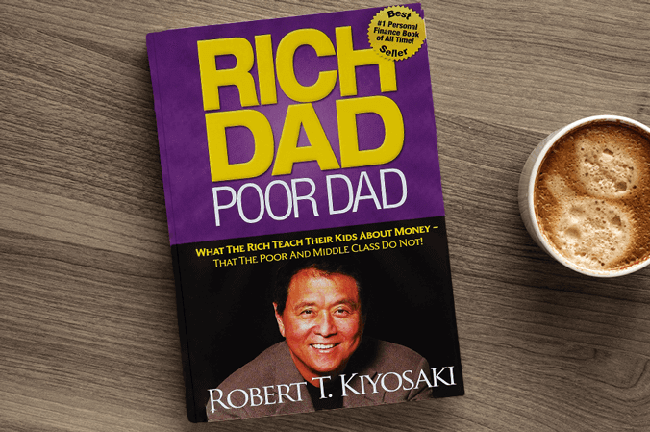
I consider this business book to be centered mostly around financial advice and author Robert Kiyosaki claims it to be the #1 personal finance book of all time. Interestingly enough, it seems to polarize most readers. People either feel that it has revolutionized their way of thinking about finances or alternatively feel that it takes 200 pages to tell a message that could have been told in 20. Here’s what I think: It depends on what your baseline knowledge about personal finance is at the time you start reading Rich Dad Poor Dad—and if you’re towards the beginning of your journey to personal finance mastery (or even something as simple as better managing your blog taxes), Kiyosaki’s message can lead to helpful breakthroughs.
In this business book, Kiyosaki focuses on how you should let your money work for you, rather than spending your life working for your money. He also emphasizes that you should avoid placing your money into objects, possessions and investment instruments that’ll cost you and incur more expenses in the long run, like flashy cars and big homes. The core message of this business book is that if you want to grow rich, buy things that generate income.
31. What If It Does Work Out?: Turn your passion into cash, make an impact in the world and live the life you were born to by Susie Moore.
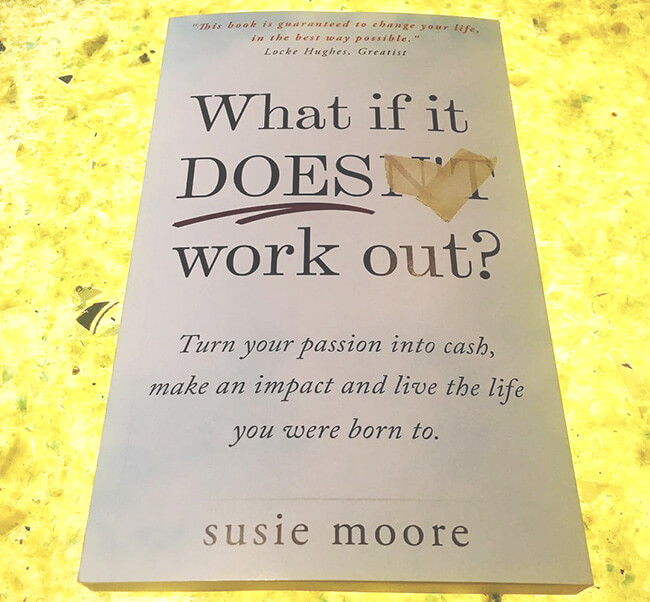
Author Susie Moore has written this business book as a motivator for readers to get pumped up about pursuing the life they really want to live. We all have hobbies, talents, and skills which we enjoy, but usually don’t go as far as turning them into a money-making venture. Her point in this business book is that it’s so easy to think about all the possibilities and then shut yourself down with the question, “What if it doesn’t work out?” In this book, we’re asked to instead consider, “What if it does work out?”
This business book aims to motivate you for overcoming your fear of failure and doubts about whether or not it’s the “right decision” to start a business of your own and begin going through the difficult process of building a profitable side hustle.
32. Decisive: How to Make Better Choices in Life and Work by Chip and Dan Heath.
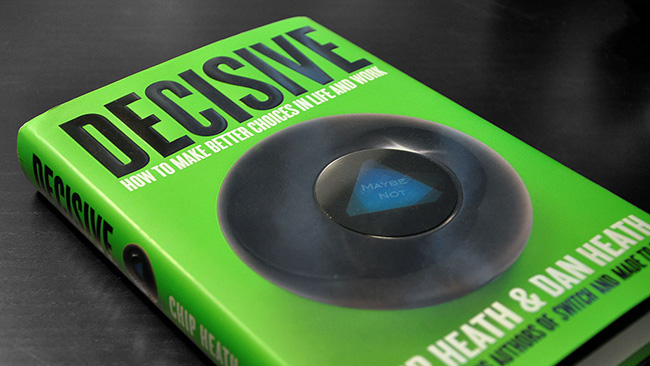
Each of Chip and Dan Heath’s business books highlight their immense strengths and research prowess deep into psychology. In Decisive, they share from their broad understanding of how people go about doing business and living their personal lives—with the goal of helping us to make better decisions.
We know from research in psychology that our decisions are disrupted by an array of biases and irrationalities. Unfortunately, knowing this doesn’t make much difference to most people. What we need to know is how to change these biases and irrationalities so that we’re able to make more informed decisions that better benefit us in the long run. This business book gives readers a four-step process to counteract these biases and it shows us how to make stronger decisions.
33. Startup Opportunities: Know When to Quit Your Day Job by Sean Wise and Brad Feld.
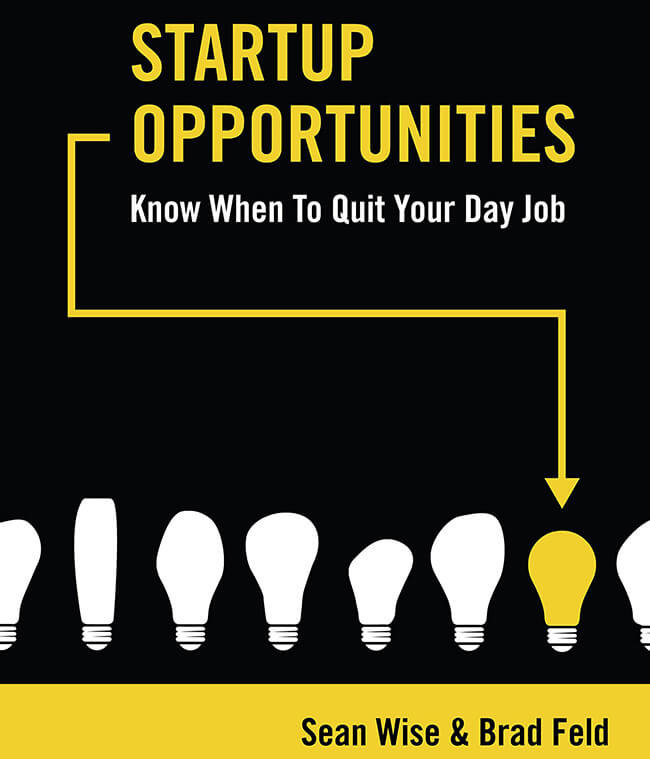
I’m a big believer in never quitting your day job to start your own business—without first validating your idea (even if that’s starting a phone case business) and having a sustainable, growing income already flowing in from your business. Authors Sean Wise and Brad Feld elaborate on this conviction of theirs in this phenomenal business book. Once you validate your idea, and if it’s viable, then you can grow your revenue, ensure your customers are happy (and come back for more) then continue building your business up at a manageable rate.
Here’s why they too feel so strongly about this: During the building phase, you still need a regular income to survive. The reality is that few businesses survive to see five years, so it’s foolish to risk everything right at the beginning before you have definitive proof that customers are willing to pay (and continue to pay) for your solution. Startup Opportunities is a practical guide to help you evaluate your business ideas. It provides realistic advice on which businesses are likely to succeed, and which aren’t. If you want to learn more from this talented duo, listen to their interview on my podcast, right here.
34. Getting Past No: Negotiating in Difficult Situations by William Ury.
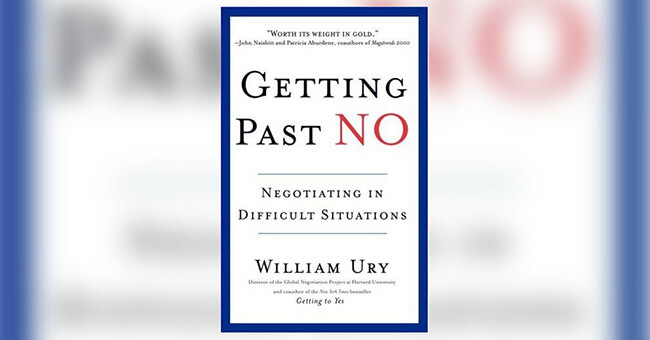
Negotiation is a difficult skill to master, doubly so if the other person is stubborn and just keeps saying “no” to everything you propose. Author of this business book, William Ury is the co-founder of Harvard Law School’s Program on Negotiation and is considered one of the world’s leading negotiation specialists.
In Getting Past No, Ury teaches numerous techniques you can use in negotiations, including how you to counter dirty tricks and reach mutually beneficial agreements that satisfy the needs of both parties. It’s a great book for entrepreneurs who want to master the art of selling and establishing strategic partnerships.
35. Essentialism: The Disciplined Pursuit of Less by Greg McKeown.
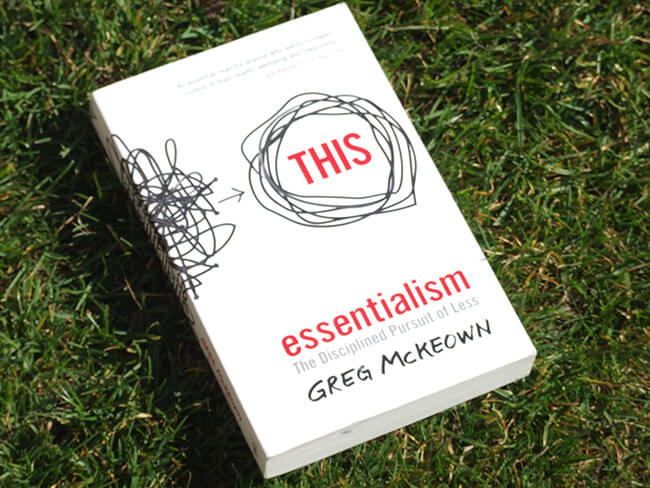
It’s so easy to get bogged down trying to do everything that we feel we need to—especially when everything feels like a top priority and we have a demanding boss breathing down the back of our necks. There are times when it seems like we spend more of our time updating the to do list, than actually completing those tasks. This is often exacerbated at work when people ask you to do “just one more thing.” You don’t want to sound like you’re not a team player, so you add yet another task to your list.
In Essentialism, author Greg McKeown shows how this is not a sustainable (happy) way to go through life. In fact, in this business book, he outlines how you can actually get more done in life by doing less. He stresses the importance of prioritizing your work, and that the word “priority” means focusing on the single most important task in the moment, not trying to juggle multiple tasks at the same time. The Way of the Essentialist is about getting only the right things done and not wasting your time on unproductive, unimportant, and often under-appreciated tasks.
36. Virtuous Leadership by Alexandre Havard.
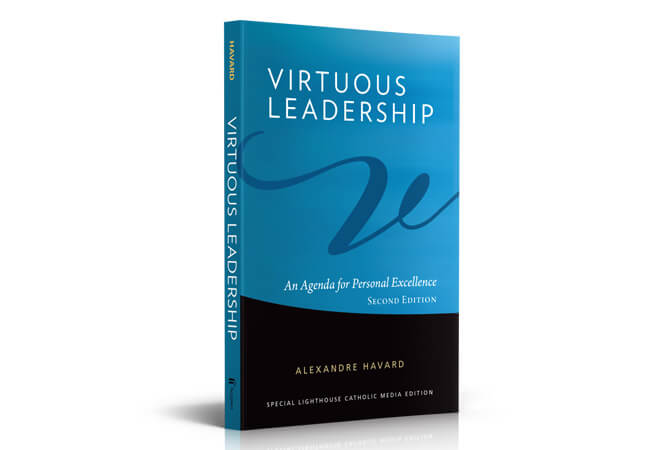
Virtuous Leadership is described as a guidebook in the quest for moral personal excellence. That’s quite a lofty claim, but bestselling author Alexandre Havard has created a movement around the topic of virtuous leadership and this seminal book has been translated into more than 20 languages to day. With a 4.5 star rating on Amazon and 4.07 star average on Goodreads, readers appear to consider it a thought-provoking read.
This business book demonstrates how virtue can impact every kind of personal and professional situation. Leadership is based on virtue and virtue can be developed, grown and deepened for anyone. Virtuous Leadership demonstrates how each of the classical and indeed spiritual virtues are essential to good leadership.
37. The Secret to Success: When You Want to Succeed as Bad as You Want to Breathe by Eric Thomas.
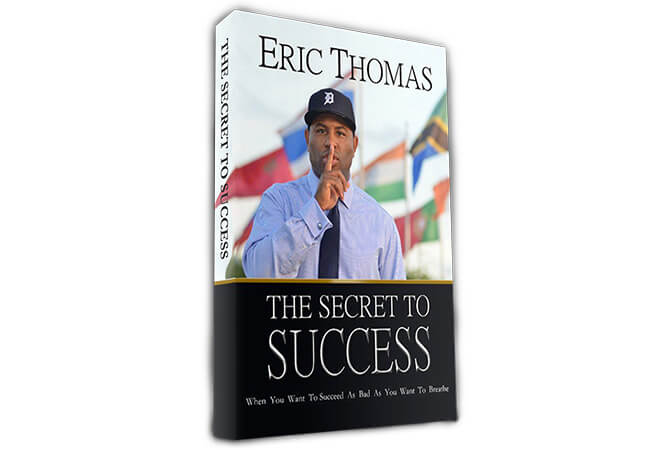
Eric Thomas, the self-described hip hop preacher, knows what it’s like to have to pull yourself up from the bottom. He began his adult life as a homeless high school dropout, sleeping in abandoned buildings in Detroit. He rose from this lifestyle to become a successful husband, father, CEO, educator, motivational speaker and author. This business book is an autobiography that chronicles his difficult rise to where he is today.
Thomas has garnered most of his fame for his role as a motivational speaker—his energy is contagious and you can feel it through this business book as well. He uses his own ability to “break the cycle” as motivation to disaffected youth to follow in his footsteps. The Secret to Success includes actionable advice for those wanting to improve their own situation in life, regardless of where you’re starting and what your struggles are. In many ways, this business book is a step-by-step guide on how to live a meaningful life.
38. The Entrepreneur Mind: 100 Essential Beliefs, Characteristics, and Habits of Elite Entrepreneurs by Kevin D. Johnson.
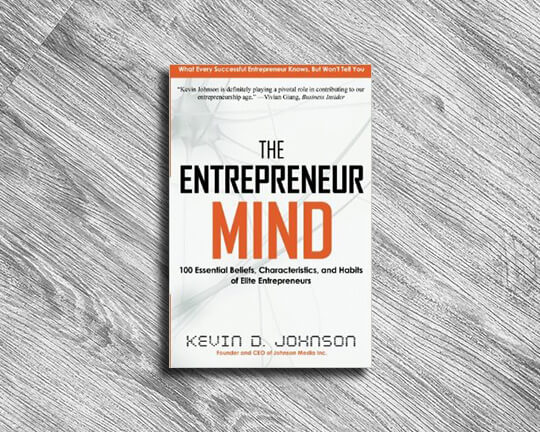
The premise of this business book is that if you hope to reach the highest level of performance as an entrepreneur, you need to change your mindset to think with the Entrepreneur Mind. The best way to do that is to learn from successful entrepreneurs who’ve already gone through the process of developing a battle-hardened mindset for business.
Bestselling author of this business book, Kevin Johnson is the president of a multimillion-dollar marketing agency that’s worked with brands like Cadillac, Bank of America and Coca-Cola. In this business book, Johnson shares 100 of what he considers to be the key lessons entrepreneurs need to learn about strategy, education, people, finance, marketing and sales, leadership and motivation in order to train yourself for success.
39. The Ten-Day MBA 4th Ed.: A Step-by-Step Guide to Mastering the Skills Taught In America’s Top Business Schools by Steven A. Silbiger.
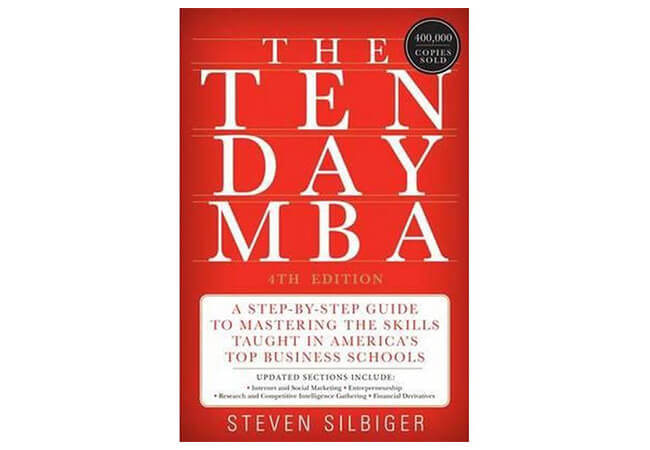
Most people can’t afford the time, money, or in many cases meet the strict entry criteria, to go to an elite university and graduate with an MBA—no matter how useful or fulfilling that educational experience may would be. The Ten-Day MBA by author, CPA and MBA graduate Steven Silbiger provides you with the essence of the material taught at America’s top business schools. As a top ten graduate of the Darden Graduate School of Business at the University of Virginia, he should know.
According to many reader reviews, even those who genuinely obtain MBAs have found this book to be a great reference source. However, it’s written for a broad audience, so you will still gain understanding even if your education is below college level. This business book focuses on the ten main things you’d learn in an MBA class.
40. Originals: How Non-Conformists Move the World by Adam Grant.
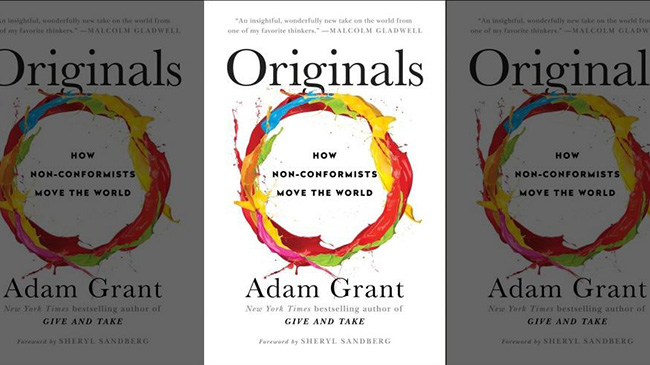
Originals is about improving the world through using original, novel, non-conforming ideas. This business book aims to inspire and encourage you to use your creative thoughts to battle conformity—and to not accept tradition for the sake of it. In this business book, Wharton school of business and New York Times bestselling author Adam Grant shows you how to come up with and recognize a good idea, then confidently share it.
In this business book, Grant shows you how to become a non-conformist by examining several real-life examples in the world. You’ll hear about an entrepreneur that pitches his startups by giving investors clear reasons not to invest, a CIA analyst that overturned the rule of secrecy in the agency, a billionaire that quickly fires employees who won’t criticize him and more in this business book.
41. What I Wish I Knew When I Was 20: A Crash Course on Making Your Place in the World by Tina Seelig.
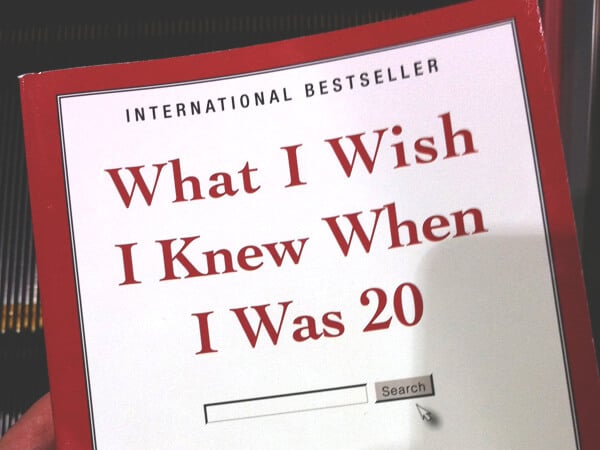
It’s amazing how many of us thought we knew it all at 20 (as I quietly raise my own hand…). What could “old people” over the age of say 30 know about life that’s so insightful, right? Of course, the reality is that the older you get, the more you realize you didn’t (and still don’t) know. Moreover, this business book acknowledges that it’s at about the age of 20 that you start to make major changes in your life. Most of us leave the comfortable environment of living with your parents, enter the world and it can be extremely challenging to make the right decisions for your future.
In this international bestselling business book, What I Wish I Knew When I Was 20, author and Stanford professor Tina Seelig shares with us what she offers her students in the Stanford Technology Ventures Program—provocative stories, inspiring advice, humility and entertainment. This is one of those books I wish I had read when I was 20. It may have helped me avoid a few of the biggest blogging mistakes I’ve made in my journey here.
42. The Social History of the Machine Gun by John Ellis.

Originally published in 1975, I can truly say that The Social History of the Machine Gun is the most “different” business book on this list—which is really a deep study of the cultural implications of lethal technology. For a start there’s the subject matter—it’s not what you’d immediately think of being on a list of the best business books. Then there is it’s age. The first edition came out in 1975 and even the current second edition dates back to 1986.
But the thing is, it’s particularly relevant to this list of the best business books because it’s very much a direct insight into the cultural battles we’re facing today between different types of political and military leadership styles. Author John Ellis has been recognized as one of the world’s most treasured historians and has authored ten books at the intersection of psychology, politics and leadership. This business book demonstrates how new and original thinkers often have to fight conservatives who resist change, if they want to implement their new ideas—it’s the perfect tool set for trailblazing entrepreneurs.
43. Running Lean: Iterate From Plan A to a Plan That Works by Ash Maurya.
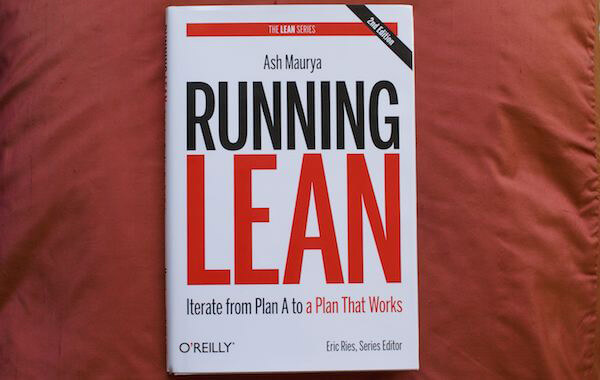
Running Lean by author and entrepreneur Ash Maurya is another business book that preaches an idea very close to my own heart. The idea that validating your business idea (even if that’s through the activity of creating a blog business plan)—before you go all in is crucial to your success as an entrepreneur. As a quick aside, if you’re having trouble with your content planning efforts, you can grab my free blog planner bundle and turn things up a notch today.
This business book provides a framework for modeling how your product or service is most likely to succeed—based on how your early audience reacts to what you’re sharing with them. It provides you with the key metrics you need to understand and focus on in the early process of collecting feedback and getting your product to market. This business book also provides a clear introduction to the philosophy of The Lean Startup. This is a great business book to read before getting started on your business idea.
44. The 10X Rule: The Only Difference Between Success and Failure by Grant Cardone.
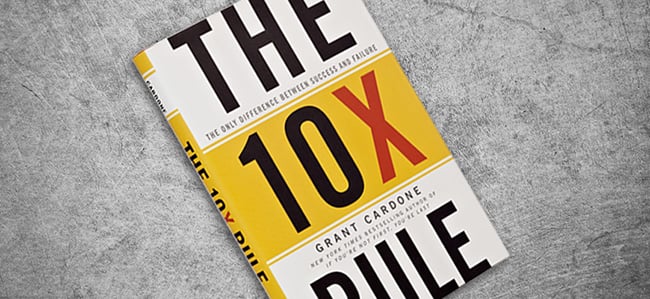
Most people operate with three degrees of action in a situation—no action, retreat, or normal action. The 10X Rule by bestselling author and sales consultant Grant Cardone gives readers a brand new level of action: “Massive Action.” It’s this principle of Massive Action that allows you to reach your dreams. In this business book, Cardone argues that in order to succeed in life, you first need to set massive goals and then take massive action towards meeting those goals.
In simple terms, The 10X Rule aims at teaching you to aim high and work harder. In fact, both your goal and the effort you put in towards achieving it should be 10x greater than would have been the case before reading this business book. On top of that, Cardone teaches you the importance of selling yourself, keeping track of your biggest wins (having a strong freelance portfolio is key for those in the gig economy), and using your successes to catapult yourself even further ahead at every opportunity.
45. Steve Jobs by Walter Isaacson.
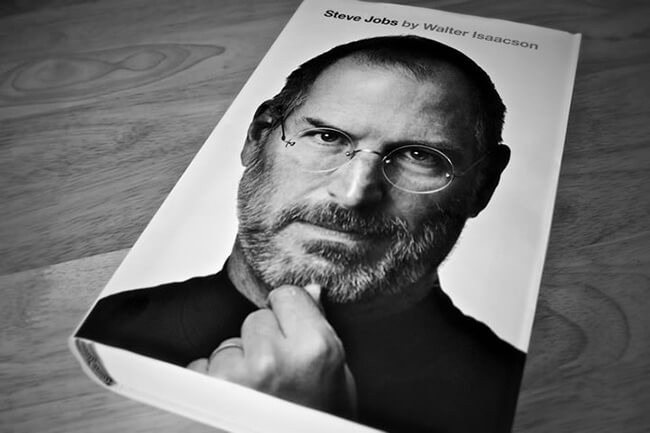
Steve Jobs has certainly left his mark in the world of business. This business book by writer and journalist Walter Isaacson who’s previously written biographies about Albert Einstein, Benjamin Franklin and others, extensively covers the late Apple co-founder’s professional and personal life.
This biography is based on extensive interviews that Isaacson conducted with Steve Jobs and those who knew him. It’s a “warts and all” biography, which Steve Jobs fully cooperated with. The reviews generally indicate that this is an accurate, engaging narrative about a compelling, if imperfect, subject who’s ingenuity changed the world forever.
46. The 4 Disciplines of Execution: Achieving Your Wildly Important Goals by Chris McChesney, Sean Covey, and Jim Huling.
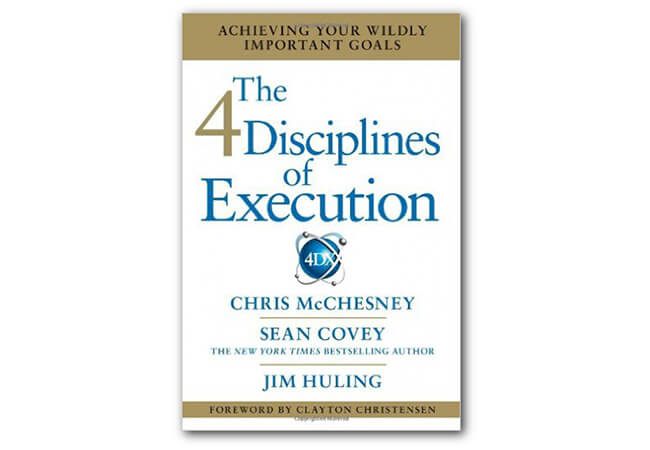
The 4 Disciplines of Execution is written by members of the time management training and organization firm, Franklin Covey, including Sean Covey, son of Franklin Covey’s founder, Stephen Covey. This business book discusses the four disciplines of execution which the authors see as being precise rules for translating strategy into action. These disciplines are focus, leverage, engagement, and accountability. The authors lay out ways they believe your business can implement and accomplish these disciplines.
47. Emotional Intelligence 2.0 by Travis Bradberry.
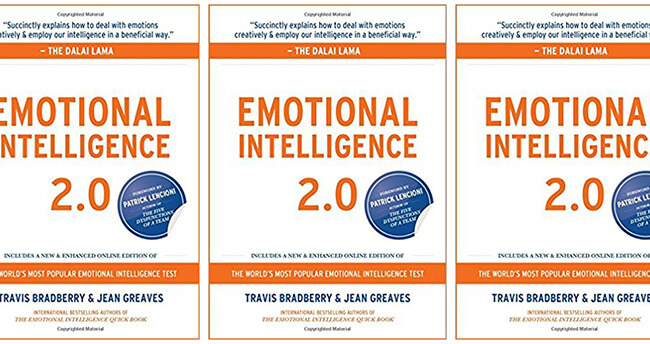
In recent years, people have discovered that our emotional intelligence (known as EQ) is just as important as our IQ for a successful life. However, while our IQ is to a large extent fixed, particularly our biological intelligence, it is much easier to improve our EQ. The premise of this business book is that emotional intelligence is considered to be one of the fundamental foundations for building a solid character.
Emotional Intelligence 2.0 provides a step-by-step program to improve your EQ, through a mixture of self-awareness, self-management, social awareness, and relationship management. And in this business book, you are given the opportunity to take an online assessment twice, to see how your EQ has changed between the tests.
48. The Culture Map: Breaking Through the Invisible Boundaries of Global Business by Erin Meyer.
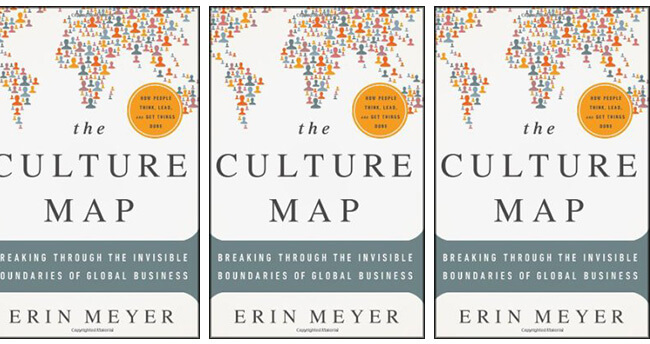
The business world may be global now. However, cultures are often still very far apart. There have been numerous cases where a global business got things horribly wrong in a local market because they didn’t make enough effort to understand the local culture. Even if you want to start a freelance business and work from a home office, you often have to adapt to working with foreign cultures. Too often a lack of cultural understanding can lead to confusion and unintended consequences—and that’s the problem this business book by Erin Meyer attempts to solve.
Erin Meyer’s written this business book in a friendly, easy-to-understand way, to raise your awareness and consciousness of cultural issues you could encounter in business dealings outside of your home turf. You don’t want to have to recall an entire product line from a market because of a culturally-inappropriate decision you made, right?
49. Small Business, Big Vision: Lessons on How to Dominate Your Market from Self-Made Entrepreneurs Who Did it Right by Adam and Matthew Toren.
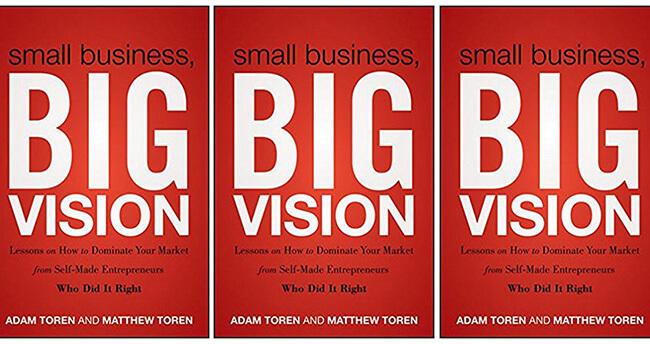
Small Business, Big Vison is one of the best business books for aspiring small business owners, full of inspiring and practical advice for getting started. It can be very confusing when going it alone in the business world, especially as a freelancer learning how to find good leads, write freelance proposals and close deals on great work from home gigs. This business book is written specifically for solopreneurs that want to unlock more growth for themselves without risking a lot of capital on complicated marketing tactics.
The authors of this business book, two brothers, not only share their own experiences, but also pull insights from numerous other successful businesspeople. In this business book, you’ll learn from their successes and mistakes. It covers everything from preparing a one-page business plan, to setting up a comprehensive action plan for effective social media marketing.
50. The ONE Thing: The Surprisingly Simple Truth Behind Extraordinary Results by Gary Keller.
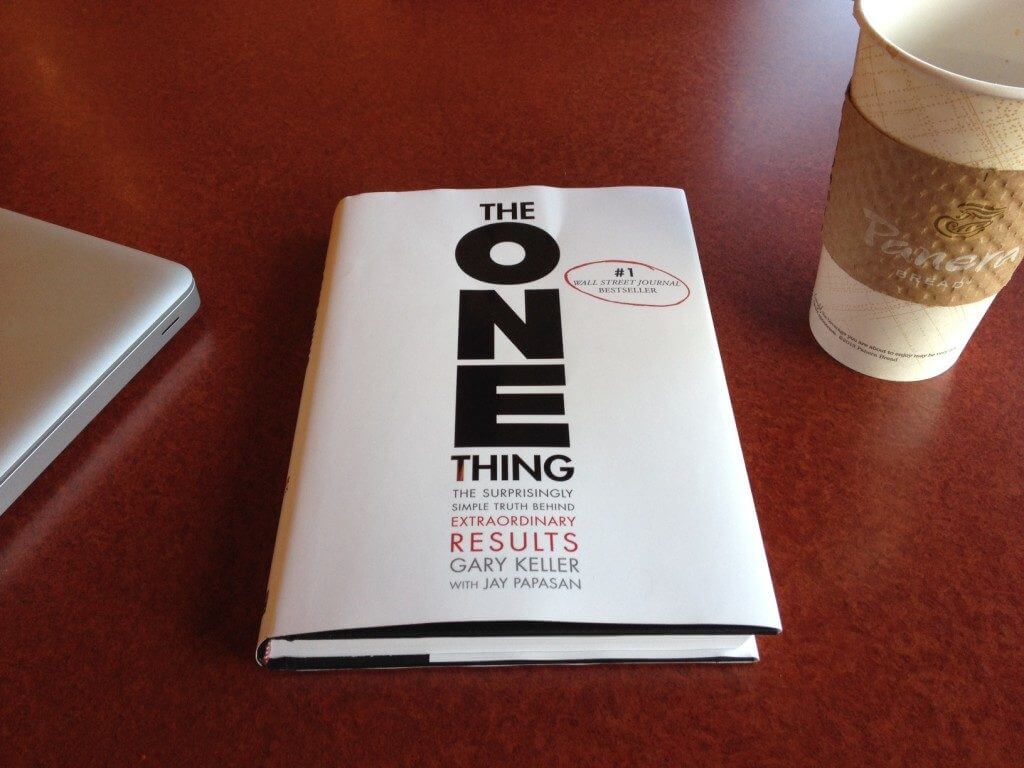
The ONE Thing certainly comes with an impressive reputation, having been on most of the important bestselling business books of recent decades. This book’s premise is that you need to build a big vision and then zoom into a narrow focus, so you can start taking measurable action to move towards your greater vision.
This business book will teach you how to be more productive and how to avoid the all-too-common productivity killers in your life. It provides you with the framework to build a plan that is not just talk. Then, you can follow the steps in that plan to eventually meet your vision.
51. Just Start: Take Action, Embrace Uncertainty, Create the Future by Leonard A. Schlesinger and Charles F. Kiefer.
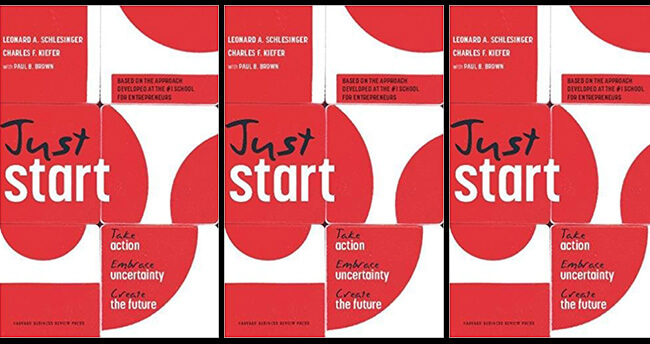
This business book appears to fly in the face of most treatises of business advice, in that it disagrees with the common view that you should prepare in-depth formal planning, and undertake market research before you start a business. The authors believe that many successful businesses were started in the past without formal plans, and this drove phenomenal growth. They believe entrepreneurs are too cautious now, and that business plans are often a tremendous waste of time and money.
The basic philosophy of this book (and why it’s one of my picks for the best business books), is that as you can’t accurately predict the future, so you should act very quickly and see how things progress—adapting and changing as you grow. Learn from your experiences. If things don’t go well, get out before it costs too much. If that happens, learn from your experiences and try again with a new business idea.
52. Shoe Dog: A Memoir by the Creator of Nike by Phil Knight.
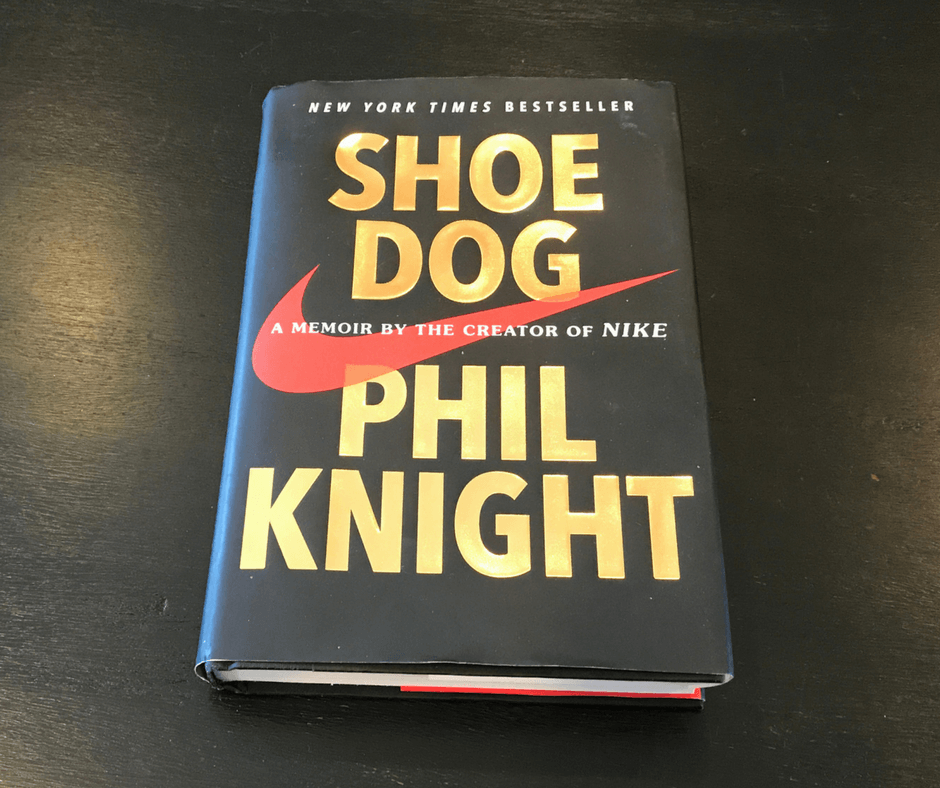
The Swoosh has to be one of the most monumental logos of all time. It’s a rare case of a logo that can be recognized by its name alone. Not bad for a logo created by a previously-unknown graphic artist for just $35.
Phil Knight, the author of this business book and founder of iconic brand Nike, created the company with $50 borrowed from his father and a simple mission: import high-quality, low-cost running shoes from Japan. That created history and one of the best-known companies in the world. This business book chronicles the story of Phil Knight and Nike. Knight bares his soul and tells his tale, warts and all. If you’re asking yourself, should I quit my job?… and are considering heading into business for yourself, this story provides great inspirational reading.
53. The Total Money Makeover: Classic Edition: A Proven Plan for Financial Fitness by Dave Ramsey.
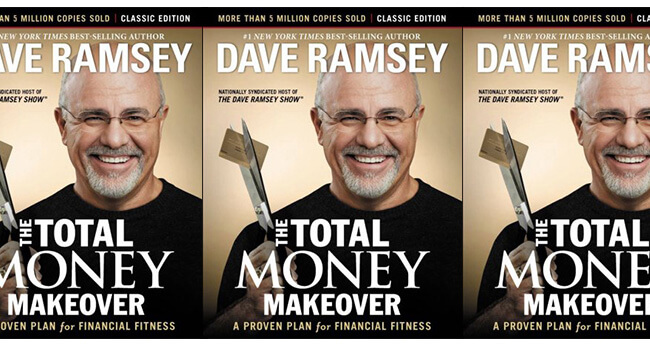
Like him or not, Dave Ramsey, the author of this business book, The Total Money Makeover, has sold millions of copies for himself over the years. This book has been through several editions over the last 15 years and seems to be eternally popular with those trying to sort out their financial chaos.
Central to the goal of this business book is providing you with a plan to pay off your debt and secure a financial nest egg. Along the way, it teaches you how to manage your money better and to avoid the 10 most dangerous money myths. Dave Ramsey walks you through seven baby steps so you can take control of your finances, with a real emphasis on paying off debt—and highlights case studies of people who’ve followed the principles in the book to eliminate their debt.
54. Retire Inspired: It’s Not an Age, It’s a Financial Number by Chris Hogan.
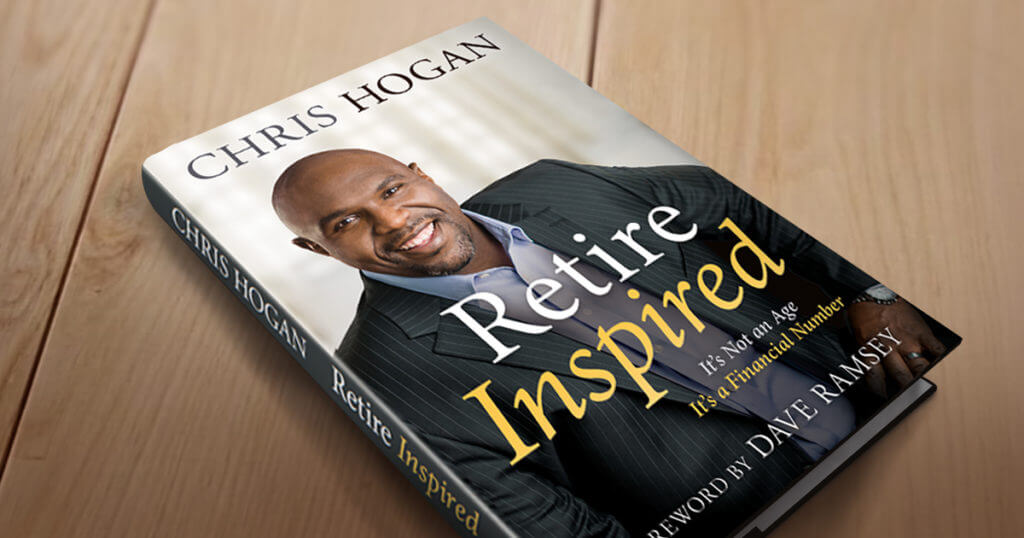
When you’re young, you usually don’t think much about retirement. It seems so far away. Yet that is precisely when you should turn your mind to funding your retirement. And author Chris Hogan wrote this business book to show you exactly why it’s so much easier to do, if you start young.
In Retire Inspired, Chris Hogan suggests a way to look at retirement from a new perspective. Rather than seeing retirement as being an age when you stop working, you should look at it as being the point where you have put sufficient funds aside that you can live the rest of your life the way you want, without the need for working. This business book also covers what you should do with your money once your house is paid off, covers emotions related to your finances, creating a financial team, inheritance and other financial retirement issues. I’d recommend it if you want to learn more about ways to also keep earning into retirement through things like house flipping, part-time jobs to stay mentally active and more.
55. Mini Habits: Smaller Habits, Bigger Results (Volume 1) by Stephen Guise.

This business book is for those of us that struggle to meet our goals and resolutions. If you find the thought of achieving a Big Hairy Goal too daunting, then perhaps working on improving your mini habits may be more to your liking. A mini habit is a very small positive behavior that you force yourself to do every day (I’m a big believer in using mini habits to reinforce my bigger, life-changing habits).
This business book’s message is that rather than aiming very high and failing, you should aim for the step in front of you. Then, once you achieve that small step forward, you can keep going and making incremental progress that adds up each day. All you need in order to see progress, is to make at least one small step every day.
56. 24/7: The First Person You Must Lead Is You by Rebecca Halstead.
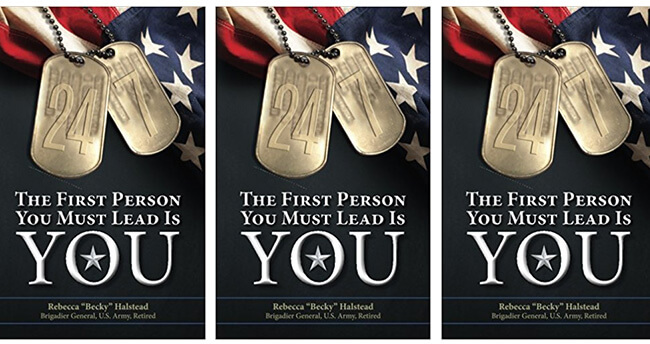
This business book is the tale of retired Brigadier General Becky Halstead, formerly of the United States Army, where she shares her leadership experiences and lessons learned in the field. She takes her extensive personal leadership experience and analyzes what she’s learned. She presents five fundamental leadership truths in this business book, which have led to the leadership principles she personally follows.
This business book provides many authentic lessons of leadership, from somebody who has been a leader her entire life, from leading high school sports teams through to being one of the first high-level female leaders in the Army.
57. 80/20 Sales and Marketing: The Definitive Guide to Working Less and Making More by Perry Marshall.
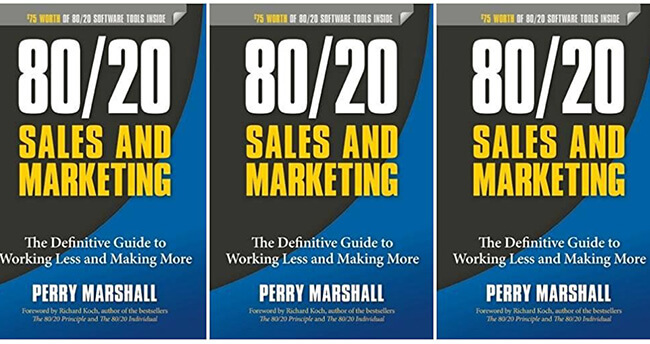
The 80/20 Principle actually applies to many facets of our lives. As Perry Marshall says in this business book, it is a Law of Nature. Regarding sales and marketing, the 80/20 Principle states that you can save 80% of your efforts by concentrating on the right 20% of your market. This business book is full of practical examples of how you can apply the 80/20 Principle in practice, from how to slash sales and marketing time-wasters, to how to differentiate yourself from your rivals. It includes suggestions on how you can use split testing, blog email marketing, crafting more effective blogger outreach emails, building a content marketing strategy and AdWords to find and focus your efforts on “the 20%” to eventually reach profitability which affords you options to do things like choose a website builder, make a website and continue growing your blog or even sell your website in order to move on to new projects.
At its heart, this business book focuses on what is formally known as the Fractal Power Law, and how you can use it to improve your sales and marketing successes, by eliminating time spent trying to sell to low-value high-demanding consumers who are unlikely to buy your product anyways.
58. Pre-Suasion: A Revolutionary Way to Influence and Persuade by Robert Cialdini.
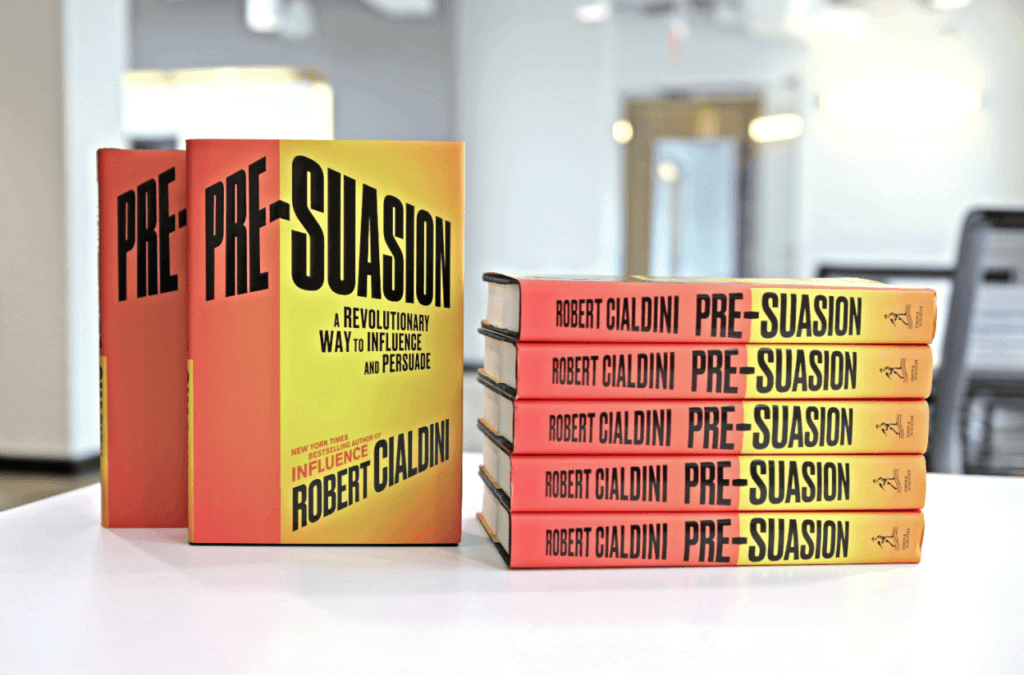
I’ve already read Robert Cialdini’s seminal business book, Influence, and this one is a fresh new take on how to master the art of persuasion. His key finding, surprisingly, is that persuasion is less about the content of what you are trying to persuade somebody about, and more about your timing. As with a good comedian, if you want to be an effective persuader, you need to master your timing perfectly. For you to effectively persuade someone else of anything, you first need to “presuade” them. I.e. you need to change the person’s state of mind before anything else.
The reason Pre-suasion makes my list of the best business books, is because it provides a phenomenal range of sales techniques that you can use to lay the groundwork for persuading someone to make a deal, or you can watch out for when someone is trying to use those techniques on you.
59. A More Beautiful Question: The Power of Inquiry to Spark Breakthrough Ideas by Warren Berger.
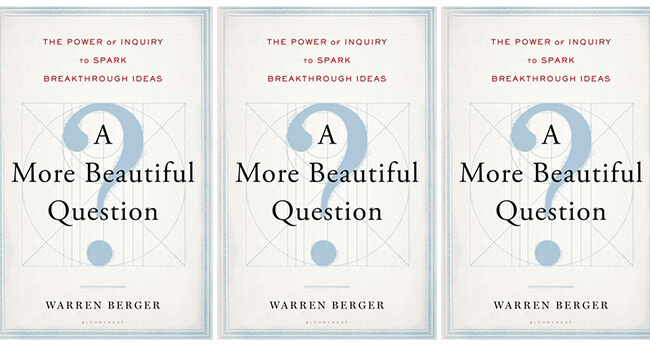
In this business book, author Warren Berger argues that one of the most powerful forces for igniting change in business is intelligent questioning. To get a great answer, you need to ask the perfect question. Imaginative questioning can help you identify and solve problems, pursue fresh opportunities and come up with game-changing ideas.
It appears that the world’s most creative, successful people are expert questioners. Questioning is, of course, the nurturing point for innovation. Kids start out asking questions but appear to lose that ability as they age. One of the biggest reasons I chose this to be included on my list of the best business books is because (like the author) I believe that in order to advance society to it’s fullest potential, we need to reignite our questioning skills.
60. The 22 Immutable Laws of Marketing: Violate Them at Your Own Risk! by Al Ries & Jack Trout.
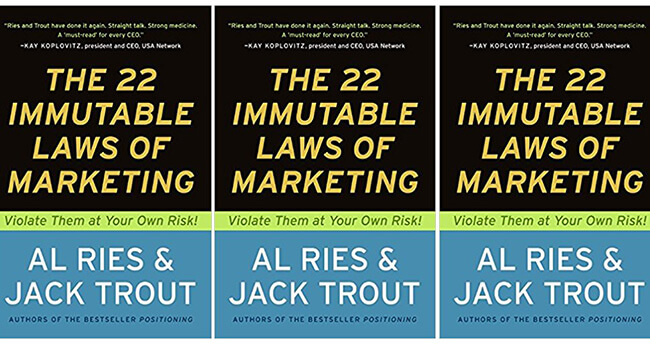
The authors of this business book argue that just as there are laws of nature that you can’t ignore, such as the Law of Gravity, there are laws of marketing that you need to follow if you wish to launch and maintain a winning brand.
Al Ries and Jack Trout argue a case for 22 of these laws in this seminal business book. These include the Law of Leadership (it’s better to be first than it is to be better), the Law of the Category (if you can’t be first in a category, set up a new category you can be first in) and the Law of the Mind (it’s better to be first in the mind than to be first in the marketplace). If you’re at all into marketing, this needs to be on your list of business books to read ASAP.
61. Lucky Or Smart?: Fifty Pages for the First-Time Entrepreneur by Bo Peabody.
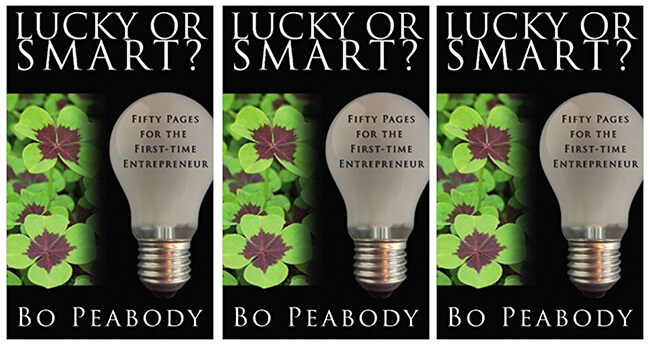
As its subtitle suggests, this is a short business book you could probably devour in one sitting (although it is actually 78 pages in total). Author, early dot-com entrepreneur and venture capitalist, Bo Peabody, walks you through his experiences as an entrepreneur, having founded five companies in a variety of industries. He ponders whether it was his intelligence that led to his success, or was it just plain luck? In reality, it was probably more that he had enough intelligence to know when he was getting lucky.
An interesting point he makes throughout this business book that it tends to be B-level students who create companies, who then employ the A-level students to help manage them.
62. The Barefoot Executive: The Ultimate Guide for Being Your Own Boss and Achieving Financial Freedom by Carrie Wilkerson.
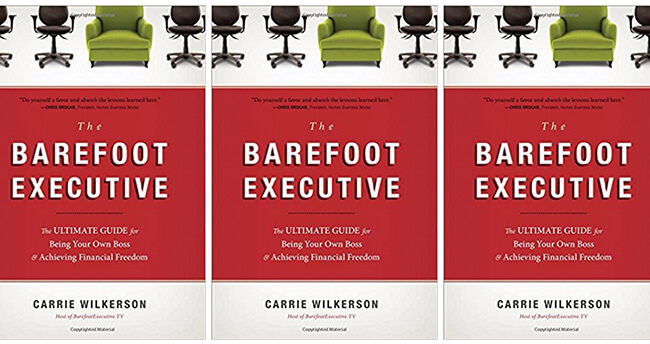
The Barefoot Executive walks new business owners through the steps of planning, starting and operating a small business. It is not so much a “How To” guide, as it’s primarily a motivation-driven business book, to help you follow your dreams. It contains practical business advice from Carrie Wilkerson’s personal experiences and takes you through the process of setting up your own business, beginning with questioning why you want to start a business in the first place (a good question). It also helps you map out a personal plan that fits your motives and which you then tailor to reflect your personal interests, entrepreneurial strengths, skills, and abilities.
This business book contains “Barefoot Action Steps” for you to take, as well as “Barefoot Case Studies” which show how others have performed.
63. Awaken the Giant Within: How to Take Immediate Control of Your Mental, Emotional, Physical and Financial Destiny! by Tony Robbins.
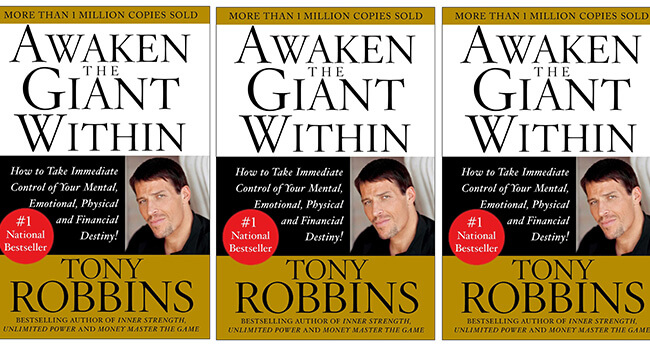
In Awaken the Giant Within, well-known motivational speaker (and motivational quote guru) Tony Robbins provides strategies and techniques for mastering your emotions, your body, your relationships, your finances, and your life—that’s an all-encompassing list! This business book is designed to give you step-by-step lessons for self-mastery.
Tony Robbins emphasizes that we are a product of our mind, which has tremendous power. And the basic takeaway of this business book is that it’s up to us to use our mind to help us enjoy life and live it the way we want it to be. That we should be using the power of our thoughts to help us live each day to its fullest.
64. Impact, What Every Woman Needs to Know to go from Invisible to Invincible by Nancy D. Solomon.
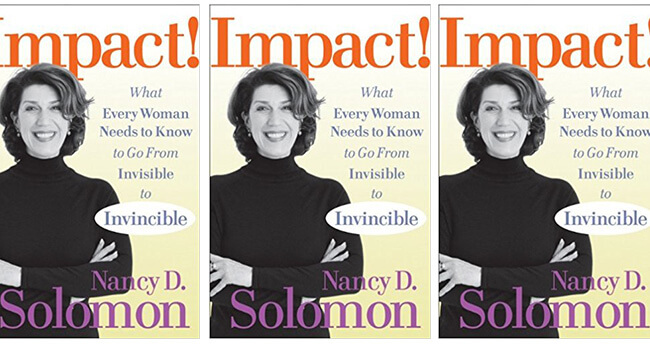
As a man, I’m not exactly the target reader for Nancy Solomon’s business book, but it’s been recommended to me by both men and women who’ve professed that there are many golden nuggets anyone can glean from the book.
Unlike many self-help business books, it focuses on utilizing and sharpening your strengths, rather than improving your weaknesses. Its key message is that you should stop trying to fit in with others’ expectations. Instead, you should hone your skills and talents and focus on being the person you were always meant to be. This business book shows you how to overcome your fears, stand up for yourself, and give yourself permission to do what you really want.
65. Think and Grow Rich by Napoleon Hill.
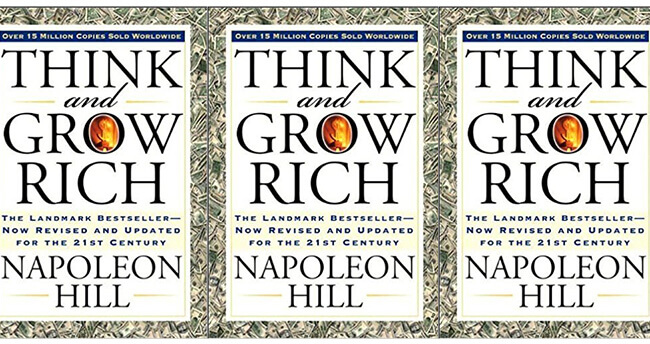
Napoleon Hill’s life-changing business book has been around since 1937. Which must make him one of the most influential self-help gurus of all-time. To date, Think and Grow Rich has sold over 100 million copies and is one of the 10 best-selling self-help guides ever—earning it a spot on my list of the best business books that are (yes) still applicable today.
For this business book, author Napoleon Hill studied the lives of many successful people and, based on his findings, came up with what he deemed to be the 13 key principles of success. To a large extent, the book is about convincing yourself you can become wealthy. One interesting statistic from the book is that 99% of the public has no goal in life and are stuck in jobs they don’t want. This was however, written during the Great Depression, so it would be interesting to see whether this statistic still holds true today.
66. The Champion’s Mind: How Great Athletes Think, Train, and Thrive by James Afremow.
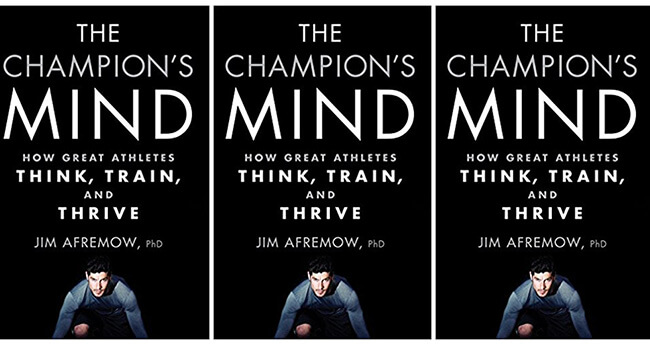
While The Champion’s Mind is very much focused on improving your performance, primarily from an athletic perspective, so much of this business book can be applied to your life as an entrepreneur as well—particularly the sections that refer to strengthening and honing your mental focus.
In many ways, the necessary traits, skills and behaviors of a top business executive, in terms of mental fitness, match those demanded of top athletes. This makes my list of the best business books because Dr. Afremow provides actual mental exercises and tangible skills to help create your own version of peak performance and to strengthen your mind for the challenges ahead. This business book is designed to help you to understand the psychology of excellence.
67. Linchpin: Are You Indispensable? by Seth Godin.
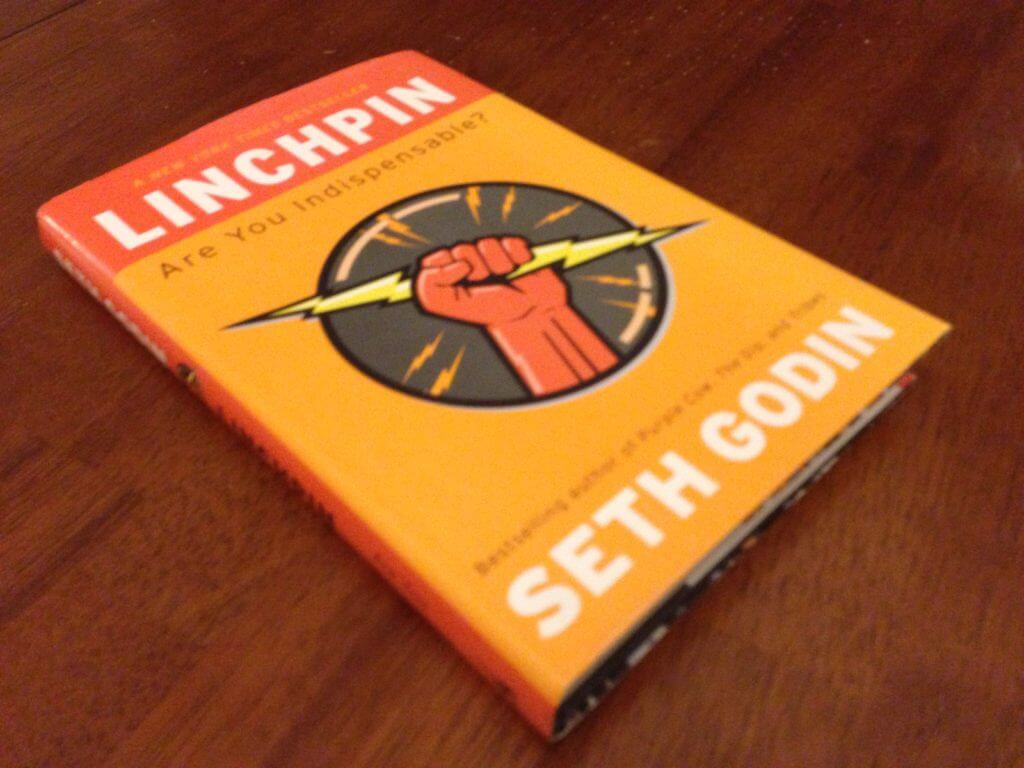
Our second Seth Godin book on this list of the best business books, places its emphasis firmly on you—your choice, your future, your potential to make a difference. He argues that as well as labor and management, there is a third group in every workplace: the linchpins.
Linchpins are the bright sparks within an organization who know what to do in situations where there’s no formal play book. They are the building blocks of great organizations, the go-to leaders people naturally look up to. In this business book, Godin argues that managers have the responsibility to develop linchpins within their employees. More importantly, however, employees have the ability to develop their own linchpin characteristics. A worker exhibiting linchpin characteristics and qualities will have a far more secure place in the workforce than the average employee.
68. Permission Marketing: Turning Strangers into Friends and Friends into Customers by Seth Godin.
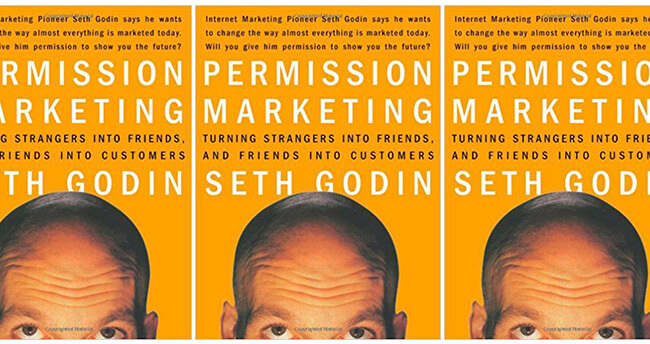
In some ways, this business book can be thought of as a history book. It’s all about permission marketing—a style of marketing that’s become ideal in today’s internet age. While this business book was published in 1999, Godin’s description of permission marketing has turned out to be an apt premonition of how marketing has had to move in the 21st Century.
In the pre-internet days, marketers came to you with their message, whether it be on the television screen, on the radios we listened to, or in the newspapers or magazines we read. This makes my list of the best business books because Godin argues in Permission Marketing, that consumers are no longer prepared to give up their precious time, to be served with advertisements. Instead, marketers need to give consumers incentives to accept advertising voluntarily.
Fast forward 18 years, and we can see that he foresaw the way of the internet and prevalence of having a well thought-out content marketing strategy in particular. Alas, he wasn’t able to convince all marketers of the uselessness of spam—the internet equivalent of old-style interruption marketing, but Godin’s seminal advice can now be applied in a variety of settings ranging from designing the perfect blog layout that’ll inspire action from your potential customers and far beyond.
69. Developing the Leader Within You by John C Maxwell.
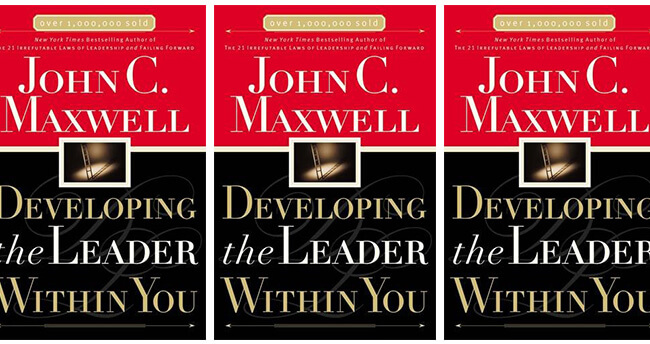
Developing the Leader Within You is Dr. John Maxwell’s first business book, which has now sold more than one million copies. Although John Maxwell developed his leadership skills within the church, they are to a large extent transferable across all sectors, including business. Maxwell speaks annually to Fortune 500 companies, international government leaders, the United States Military Academy, and even the National Football League. In 2014 he was named the No. 1 Leadership and Management Expert in the World by Inc. Magazine.
Developing the Leader Within You makes my list of the best business books because it covers topics like the true definition of a leader, traits of leadership, and the difference between management and leadership—it’s a classic must-read for an up-and-coming leader hoping to inspire their employees.
70. Failing Forward: Turning Mistakes into Stepping Stones for Success by John C Maxwell.
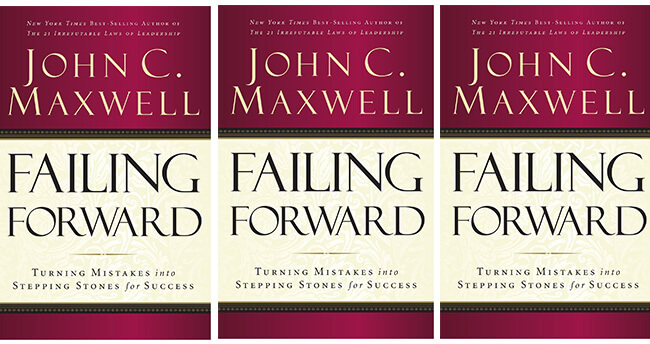
In this business book, best-selling author John Maxwell focuses on the differences between average people and those successful people who achieve. He discusses whether people are simply born lucky, or whether there are other reasons for them becoming successful, while others seem doomed to failure from the moment of their birth.
One of the problems people face, according to Dr. Maxwell, is that they are unprepared for failure. Why this makes my list of the best business books is because successful people still have their fair share of failures, but the difference is that they know how to deal with them; to learn from their failures, to move on and turn things around. They know how to take responsibilities for their failures and not blame others.
71. The 360 Degree Leader: Developing Your Influence from Anywhere in the Organization by John C Maxwell.
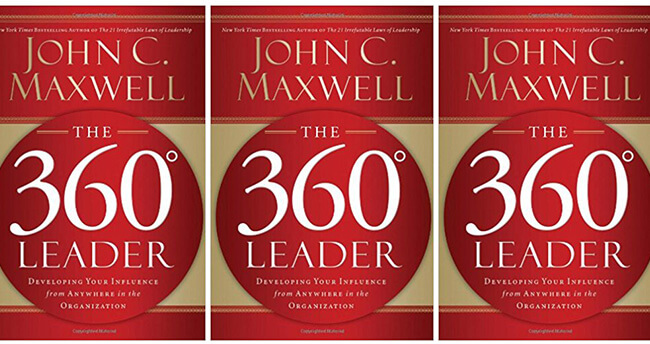
This business book is John Maxwell’s answer to the most common question he’s asked at his leadership conferences: “How can I implement what you teach when I’m not the top leader?” This is a very good question when you think about it. Most people have a boss they report to, which makes it more difficult to introduce new leadership practices.
Dr. Maxwell shows that you can still provide genuine leadership in middle management. You have the ability to demonstrate leadership in all directions—upwards (to your boss), across (to your peers), and downwards (to those you lead). Middle managers are in the ideal position to be full 360-degree leaders.
72. Winning with People: Discover the People Principles that Work for You Every Time by John C Maxwell.
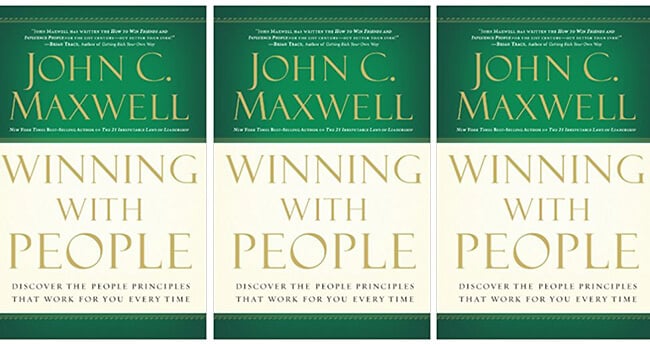
If you can’t tell by now, I’m a big fan of John Maxwell’s business books. In Winning with People, Maxwell focuses on relationships. Everybody involved in a business has to build relationships with the people they come into contact with. Even a solopreneur owner has relationships with clients and anyone they need to work with like accountants, contractors, and legal advisors.
In this business book, Dr. Maxwell discusses the key principles of relationships, such as the Bedrock Principle, that trust is the foundation of any relationship, and the Lens Principle, that who you are determines how you see others. This business book can help you improve your people skills, and is thought-provoking for anyone who works with people.
73. The Slight Edge: Turning Simple Disciplines into Massive Success and Happiness by Jeff Olson.
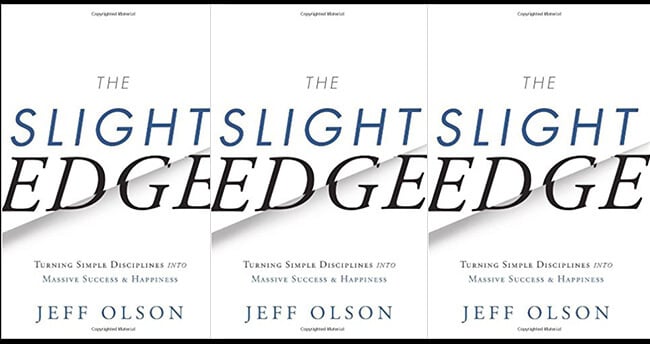
The Slight Edge explains how if you change the way you think and process information, you can change your life, leading you to more effectively achieve your dreams.
The premise of this business book is that if you can change your mindset and follow certain daily disciplines, you can radically change your life—which I’ve personally experienced as a result of reading this business books. The daily disciplines are simple productivity upgrades, but when you repeat them day after day, the results can be astounding. One of this business book’s philosophies is that, “difficult takes a little time, impossible only takes a little longer.”
74. The Success Principles (™) – 10th Anniversary Edition: How to Get from Where You Are to Where You Want to Be by Jack Canfield with Janet Switzer.
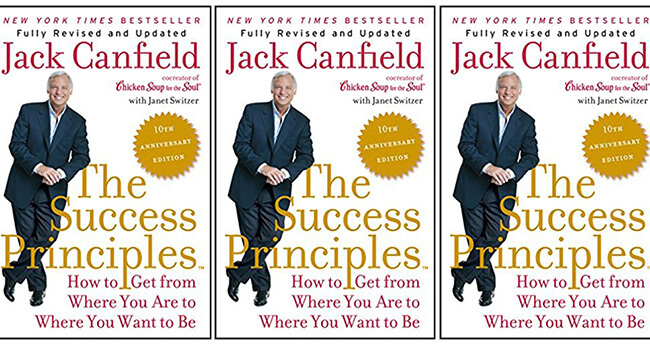
This classic business book provides you with 64 timeless principles used by successful men and women, that author Jack Canfield got to interact with and interview. These are a mix of CEOs, world-class athletes, celebrities, and successful everyday people.
The journeys, experiences and principles these successful people exhibited on their rise to the top are explained step-by-step in this business book, so you can follow them in your own life. If nothing else, this business book can put you in the mindset that you can do something big. Many of the principles aren’t earthshakingly original—but Jack Canfield tells them in a way that sticks in your mind.
75. The Miracle Morning: The Not-So-Obvious Secret Guaranteed to Transform Your Life (Before 8AM) by Hal Elrod.
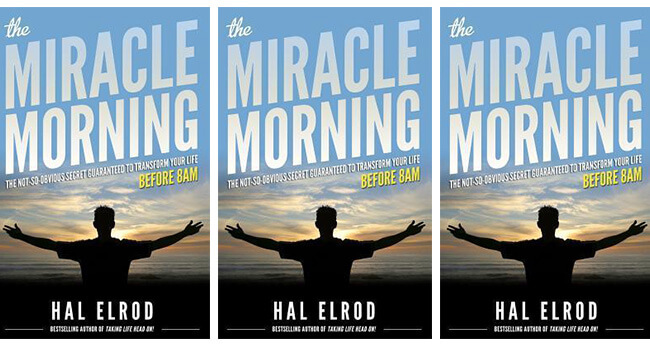
This business book, but author and entrepreneur Hal Elrod, brings you easily applicable tweaks, habits and changes you can use to wake up each morning with more energy, motivation, and focus. As the title suggests, it’s possible to start your day off in a manner that transforms your mentality about the work day.
Hal Elrod suggests you should wake an hour before you usually do and spend about 10 minutes doing one of these key intention-setting activities: meditating, saying affirmations, visualizing, exercising, reading something constructive, and writing. His hyper-enthusiastic demeanor will keep you engaged, and his tactics are very approachable, and there is evidence that this routine can make a huge difference to your well-being, which is why this makes my list of the best business books.
76. How to Be a Power Connector: The 5+50+100 Rule for Turning Your Business Network into Profits by Judy Robinett.
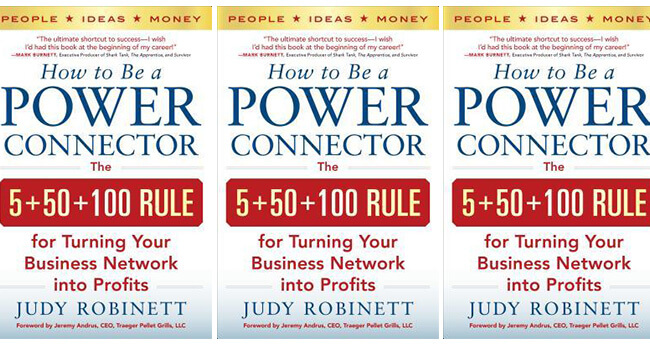
There’s a famous cliché that’s undoubtedly a truism: “It’s not what you know, it’s who you know.” The takeaway being that no matter what kind of business you want to start, you need to surround yourself with standout people. According to author Judy Robinett, strategic relationship planning should be your top priority if you aim to achieve long-term success. If you have high-powered connections, it is much easier for you to come in contact with key influencers, and to find the best network that will help you meet your goals. This business book is all about building quality connections, rather than simply building up as big a list as possible.
For this business book, Robinett has developed the 5 + 50 + 100 Rule. This states that you should keep in daily contact with your top 5 connections, weekly with your key 50 connections, and monthly with your most vital 100 connections. Sound like a lot? Well, that’s because it is—but this made my list of the best business books because of how important your relationships will be (for the years and endeavors to come).
77. The Promise of a Pencil: How an Ordinary Person Can Create Extraordinary Change by Adam Braun.
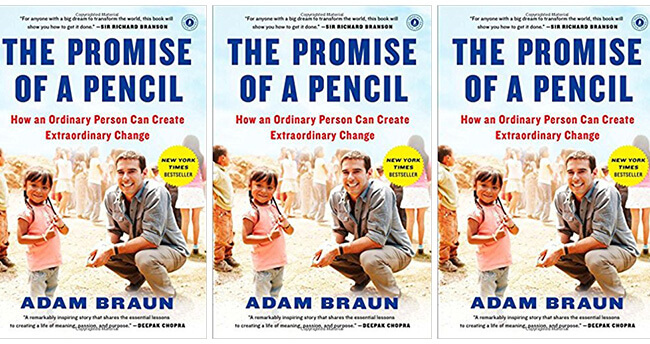
This is a story of how one man, Adam Braun, made it his mission to make a difference in the world. Along the way in this (somewhat) business book, he shares with us the steps he took to turn his ambitions into reality—a journey that’s particularly relevant to an entrepreneur that wants to create a positive social impact through business.
The story started when Adam Braun met a young boy begging on the streets of India. Adam asked the boy what he wanted more than anything else. The answer was, “a pencil.” This sparked an idea for Adam, who then went about setting up an organization, Pencils of Promise, which has now contributed to more than 250 schools worldwide.
This still makes my list of business books, because Adam shares 30 powerful mantras that’ll inspire you to do more than just chase your own financial dreams—but to help you remember that success comes with the responsibility to help others too.
78. The 12 Week Year: Get More Done in 12 Weeks than Others Do in 12 Months by Brian Moran and Michael Lennington.
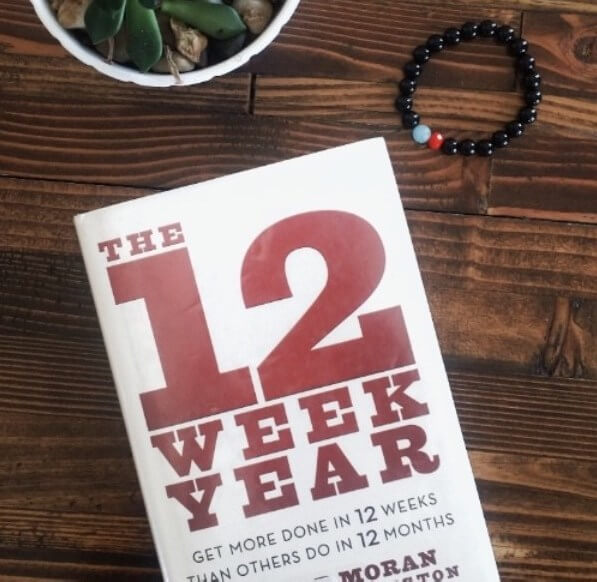
The 12 Week Year takes an interesting approach to planning. Rather than considering your business year to be a traditional 12 months, this business book suggests that you should plan for it being only 12 weeks. The argument is that if you think about the traditional calendar, you have peak times and slump times. With a 12-week time cycle, there will be no slack times, and you can remain focused for the entire period, celebrating your successes at period-end.
This is, of course, another goal-setting focused business book. But the focus here is on setting, following and achieving 12-week goals that’ll stretch you to deliver at higher performance (and focus only on the right allocations of your time). This means that you need to break down your bigger challenges into 90-day chunks. This makes my list of the best business books because it’s such a seemingly simple, yet highly effective concept. 12 weeks is neither so long that it seems distant and unimportant, nor so short that you immediately start to panic about your goals.
79. The War of Art: Break Through the Blocks and Win Your Inner Creative Battles by Steven Pressfield.
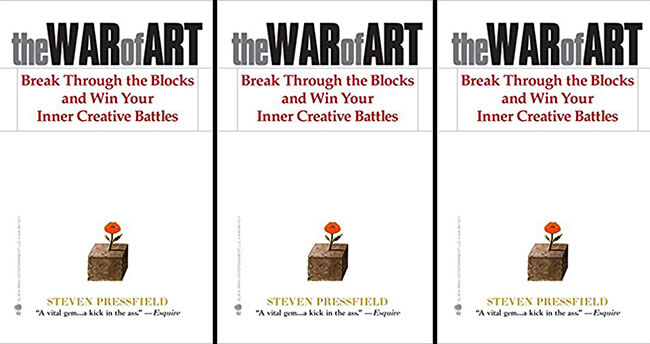
There’s a timeless classic called The Art of War, dating from the 5th Century BC where renowned Chinese military strategist, Sun Tzu outlines military strategy and tactics. The fact that it is still required reading in many leadership and military courses after all this time says something about its importance. In this business book, author Steven Pressfield wrote The War of Art to do for the soul what Sun Tzu did for military leadership.
This business book is an essential guide for succeeding in any creative endeavor; how to ensure your head is in the right space as you engage in your creativity, how to avoid writer’s block, how to brainstorm your perfect business idea and then start bringing it to life.
Steven Pressfield believes our biggest enemy is “resistance,” and that it is inherent inside all of us. Resistance is our natural tendency to procrastinate and get distracted from what we really should be doing. He doesn’t just recognize resistance, though. He provides practical strategies to fight our internal resistance, which is what solidifies it’s place here on my list of the best business books.
80. Ignore Everybody: And 39 Other Keys to Creativity by Hugh MacLeod.
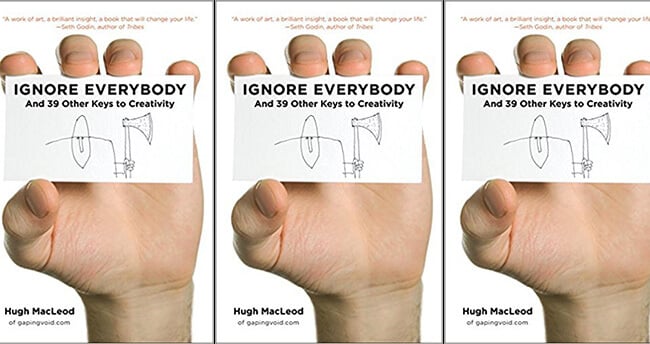
This business book grew out of cartoons on the back of business cards that Hugh McLeod used to draw as doodles while sitting at a bar. He moved on from the cartoons to a blog Gaping Void, and eventually wrote (and drew) this book. In it, he shares his insight into how people can improve their creativity.
This is one of those business books that polarizes readers. I think this very much depends on how much you like Hugh McLeod’s type of dry humor and simplistic drawing style. He isn’t PC at all, so if you’re the politically correct type, I would avoid this one—or if you are offended by frequent fucking swearing (clearly, I’m not). This makes my list of favorite business books because his tips are all about defending your creative spirit and your right to have it.
81. Built to Last: Successful Habits of Visionary Companies by Jim Collins and Jerry I. Porras.
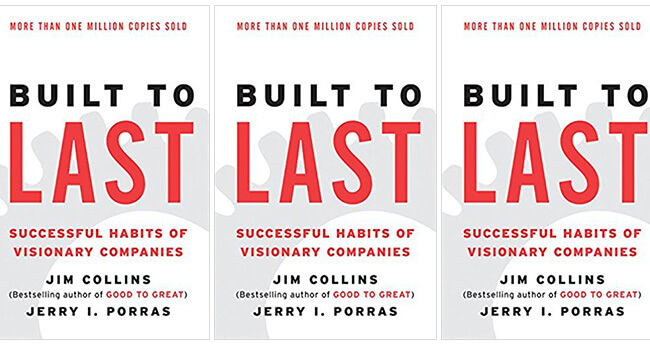
Built to Last is an enduring business book, and was first published back in 2004. It looks at 18 exceptional successful companies and analyzes them in direct comparison to their main competitors. The authors based their work on a six-year research project at Stanford University Graduate School of Business. They tried to determine what it was that made these particular companies successful, at the expense of their opposition.
The focus is very much on what makes a visionary company. Visionary companies are made up of many people who come and go, some of whom are visionary and highly talented leaders. Yet despite eventually losing their top talent and big names, these companies keep their vision. As the authors analyzed their data in this business book, they were able to shatter quite a few common success misconceptions.
82. Reinvent Yourself by James Altucher.
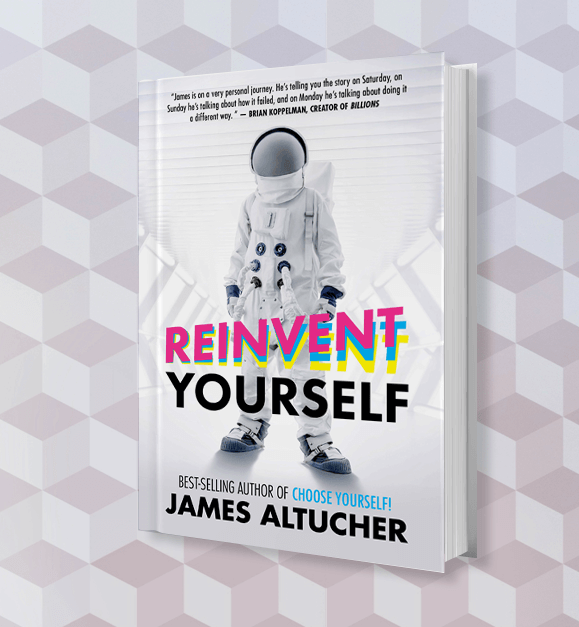
In Reinvent Yourself, bestselling author and entrepreneur James Altucher (in typical fashion) takes an insanely deep dive into his several successes, numerous devastating failures and how he’s constantly reinvented himself in the face of painful life changes over the years. If you’re in a personal or professional rut, feel like your business needs a change of direction, or that you just need to try something new, this business book will be incredibly helpful by learning Altucher’s personal process for perfecting the art of reinvention.
What I love most about Altucher’s writing style in his many business books, is that he’s not afraid to go down the rabbit hole when he encounters a question he feels his readers will have—this business book is no exception. In it, he describes specific strategies, chases down the answers to your fears & objections, shares personal stories, explains case studies in transformation from other entrepreneurs he’s interviewed and gives you the blogging tools you need to master the skill of reinvention.
83. The Power of KM: Harnessing the Extraordinary Value of Knowledge Management by Brent N. Hunter.
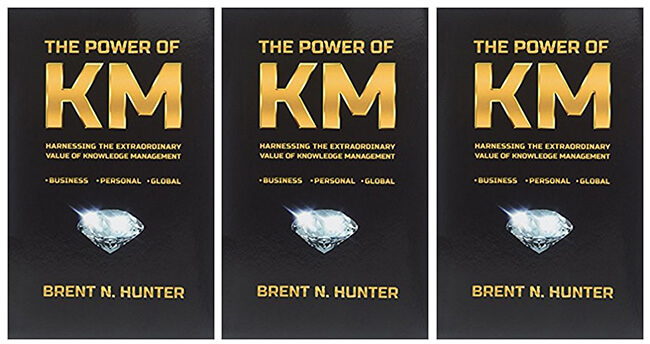
Have you heard of knowledge management? Brent Hunter’s business book on this topic is a clear introduction to the subject and explains all of the basics of what knowledge management entails. It’s written for beginners, so don’t expect a textbook for an MBA graduate. It’s more aimed at managers who can take its ideas and put them into practice in their organization—in order to better your internal processes.
The key learning from this business book is that knowledge is power, and therefore knowledge management is extremely valuable to any entrepreneur or manager.
84. Tribe of Mentors: Short Life Advice from the Best in the World by Tim Ferriss
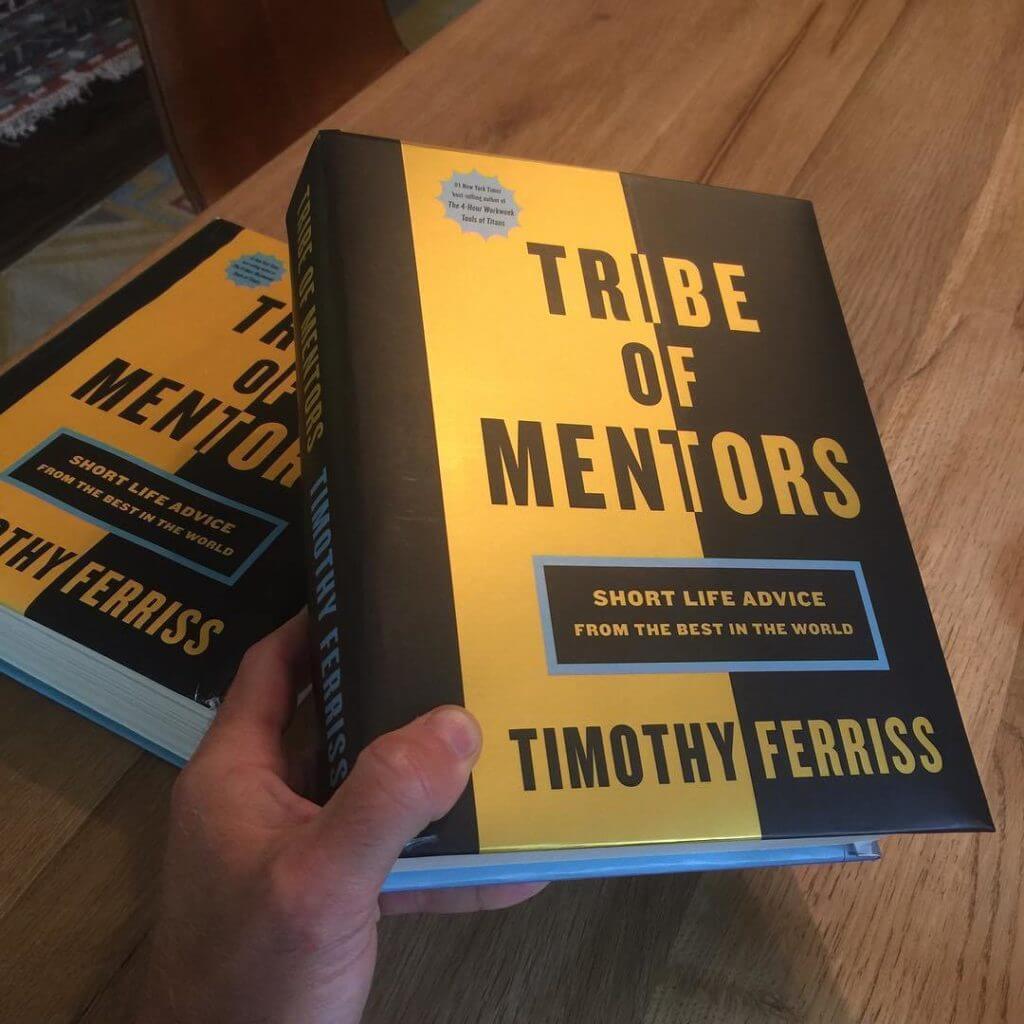
This incredible business book comes as the culmination of everything Tim Ferriss has worked on over the past decade. From penning some of the most popular “life advice” books of all time, to launching Apple’s consistently #1 ranked business podcast, to countless other accomplishments and adventures—Tim has always been a mentor from afar for me. Side note—if you’re considering starting a podcast of your own, be sure to check out my picks for the best podcast hosting platforms on the market today.
Another 600+ page monster, Tribe of Mentors takes a different approach than most business books that offer up the author’s key advice—it tackles a wide-range of topics and pulls insights & advice instead from people who’ve been influential mentors to Tim. The roster of people Tim cites and pulls advice from in this book is insane. From Ray Dalio to Maria Sharapova, Kelly Slater, Tony Hawk, Jimmy Fallon, and even some guests I’ve had on my podcast here—Debbie Millman, James Altucher, Noah Kagan and others.
85. Rich20Something: Ditch Your Average Job, Start an Epic Business, and Score the Life You Want by Daniel DiPiazza.
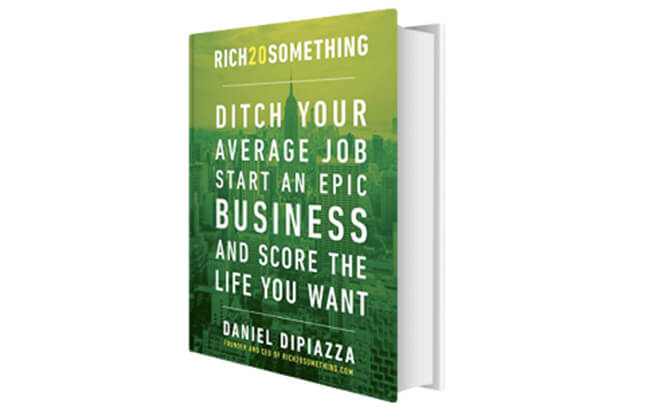
Beyond being an author of one of the most well-received business books for Millennials in the past few years, Daniel is a contributor to Entrepreneur, Inc, Business Insider and more. He’s also the founder of an incredible blog about how millennials can quickly build a profitable business based around their passions—I’ve been reading and following along with him for years at Rich20Something.com. In this business book, Daniel dives into his backstory about how he went from clocking hours at low-paying jobs in hopes of eventually making it—and how we completely changed the trajectory of his career by choosing a niche to blog about that he had a deep interest in.
Now at the age of 28, Daniel has launched multiple successful businesses without taking any investment—simply by discovering his strengths and monetizing his skills to create a life he loves. This business book is your roadmap to achieving the same. In it, you’ll learn how to fail-proof your business idea, how to prioritize your limited time outside of your day job, his promotion strategies to help make you money around the clock and how he went from ten followers to more than 500,000.
What’s Your Favorite Business Book?
Did I miss any of your picks for the best business books to read in 2024? Keep in mind that while most of these books I’ve reviewed are available for purchase on Amazon, there are also plenty of websites out there that offer free books to download online—many of which communicate similar ideas, insights, and actionable advice to take your business to the next level this year.
If I missed one (or two) of your favorites, comment below telling me:
1. Your choice for the #1 best business book you think we should read
AND
2. The name of the author.

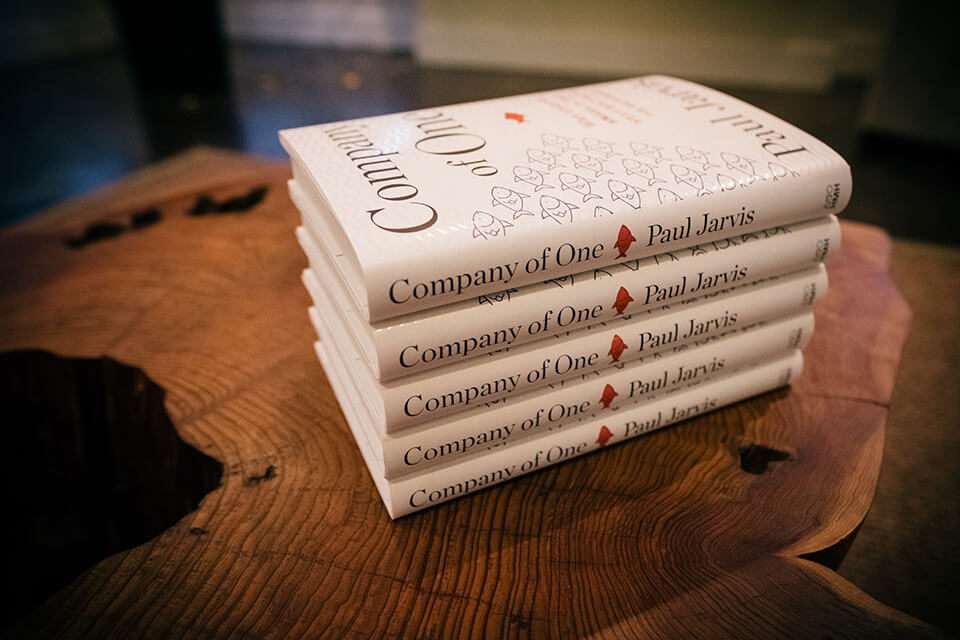
339 replies to “85 Best Business Books in 2024 for Entrepreneurs, Creatives & Professionals to Read (and Grow)”
Lucky or smart by BO Peabody.
Bare Foot Executive.By CARRIE WILKERSON
I WANT YOU TO INTERVIEW BO PEABODY.
CARRIE WILKERSON
I’d kindly ask you to read; Awaken The Giant Within by Tony Robinson.
While it may not be a traditional business book, every woman or anyone who has women in their lives that they care about should read, “Impact, What Every Woman Needs to Know to go from Invisible to Invincible” by Nancy D. Solomon. I plan to re-read it again this spring. Nancy is very inspirational and her message may be directed to women specifically, I think everyone could use a little inspiration of the kind she offers. “Impact” addresses leadership and career issues and a wealth of other topics. Check her out on LinkedIn – linkedin.com/in/nancydsolomon OR her website – www.nancydsolomon.com.
Tim Ferriss! Definitely! After reading his book, my whole life changed 😉
I’d recommend the old book called “Think and Grow Rich” by Napoleon Hill.
the book is so rich in the sense that it gives the experience of more than 500 wealthy men who began from scratch and made it in life.
The book by Tim Ferriss would definitely be one to read. Here are a couple more ideas, though not both Business books:
-“The Champion’s Mind” by James Afremow
-“Personal MBA” by Josh Kaufman
Developing the Leader within you.
Failing forward.
The 360 degree Leader.
Winning with people.
Your road to success…
All by John C Maxwell
The Subtle Art of Not Giving a F*ck by Mark Manson
Hey mr.I recommend that u do dive into the ‘business of 21st century’ by robert kiyosaki.
Jeff Olson, author of The Slight Edge
Jack Canfield, author of The Success Principles
Hal Elrod, author of The Miracle Morning
Hello Ryan,
It’s John from Brazil. Well it looks like you have enough for about 2 or 3 years, but I will throw in my 2 cents also. How to be a Power Connector by Judy Robinett. I could talk to her also and see if she would be open to an interview. Good luck my friend.
John Biester
The Promise of a Pencil by Adam Braun
The 12 Week Year by Brian Moran
Focus in 12 week cycles to “supercharge” your business.
Deep Work by Cal Newport
+1 for Deep Work — glad it’s on your list! We’re reading it for our company book club, and I can’t wait to start it.
I was going to recommend Start With Why but Keri V. Beat me to it. The War or Art by Steven Pressfield is a must – especially for writers. Another good one is “Ignore Everybody” by Hugh MacLeod.
Built to Last by Jim collins is a good read
Hey Ryan! Just joined your site and community and very impressed. Thanks for reaching out and asking us!
The book or books really I have really enjoyed are:
-The One Thing by Gary Keller; very good, simple approach to goal setting by doing it to the now. It’s simplicity is pretty deep and helps with finding out what really important and how to accomplish it
-The 10% Entrepreneur by Patrick J. McGinnis; one I find awesome because it talks about being an entrepreneur at 3 different levels and specifically for people who still work but still want to be part of something great and can really. Does great explaining how help analyze what you can do and how to approach making it a reality no matter what you do full time
Well my post is a novel sorry but Thanks again
GREAT suggestions, Courtland. Thank you! The One Thing is high on my list—it’s been recommended to me from several smart people.
What are you reading right now?
The One Thing has honestly been the best book I have read in a long time in terms of goal setting. So I’m applying what I have learned to my job, family and progressing side hustle. But I have a rule that for every business book I read I then read a book to help grow my spiritual life as well. So I have started The Confessions of Saint Augustine of Hippo and then it’ll be a biography about either Mother Theresa or try to re-read G.K Chesterton’s The Everlasting Man (very good but takes a couple times to let it sink in)
I would like you to read and interview Chibamba Kanyama. He has authored two books. Business values for our time and Achievement values for young adults. They are both a must to read books.